UNDERGROUND THE
NJLICA’S QUARTERLY PUBLICATION
SPRING/SUMMER 2023
MEMBER SPOTLIGHT: Jeff Salmon's family business has been serving New Jersey communities since 1896.
PLUS: Tips for renting equipment, common Clearinghouse misconceptions, and takeaways from the construction industry's first quarter.

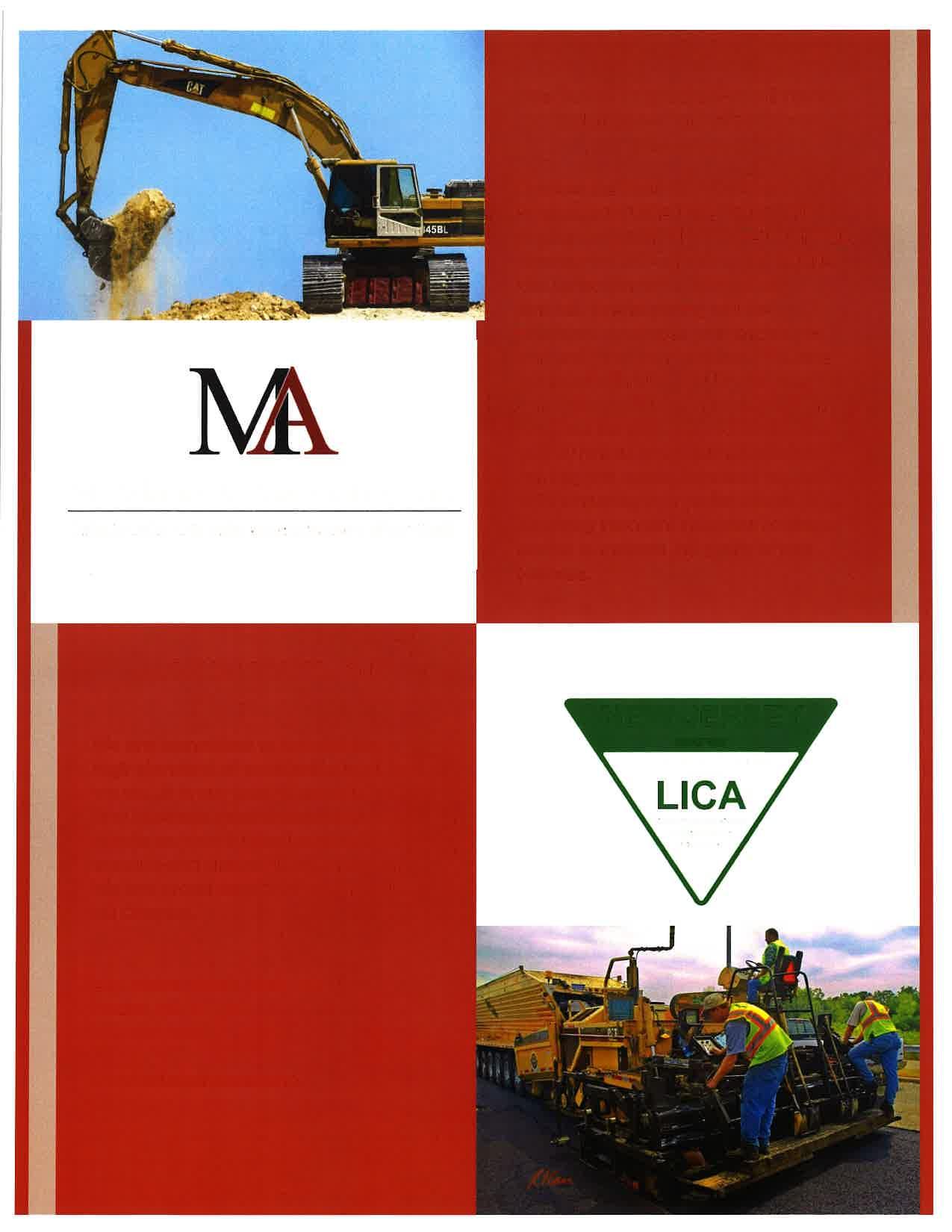
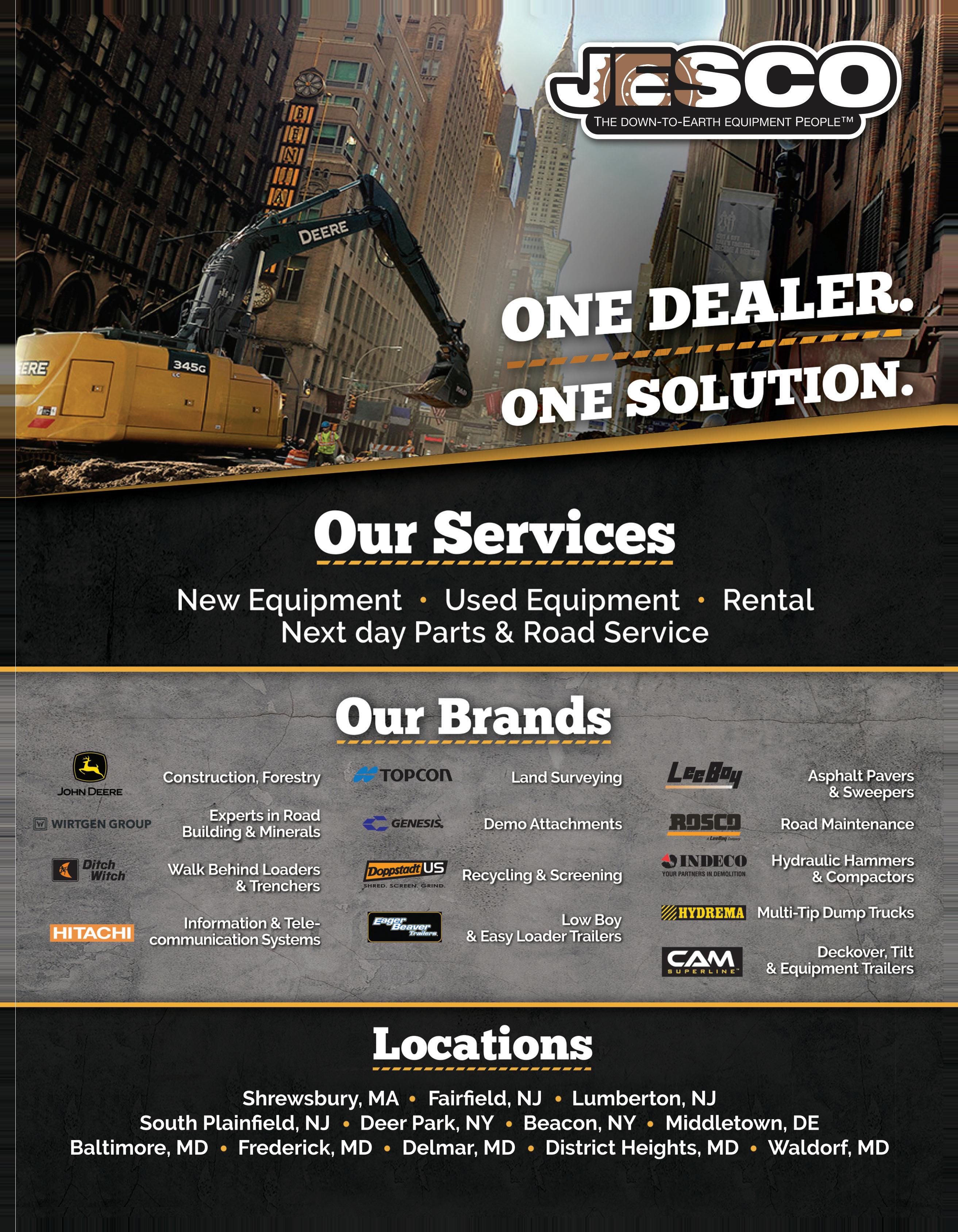


TThe 2023 construction season is well underway. I’m hearing everyone has plenty of work. First and foremost, I would like to congratulate all the NJLICA Scholarship recipients. I’m always blown away when reviewing the applications. It’s good to know that the recipients are going to make a significant difference in the future.
NJLICA is planning a one-day field day to as sist the NJ Fire Museum and Fallen Firefighter Memorial, located in Allentown, N.J. This project consists of removing stumps and grading areas. It’s a much smaller project than we have done previously, but no less important, and will be much appreciated by the museum. Please contact Buddy if you are interested in helping with this project.
I always stress the importance of belonging to a trade association in order to gain and share information with industry professionals. As we continue to grow and approach 500-plus contractor members, I am hopeful that the attendance at our events continues to grow. The board works very hard creating programs, including safety meetings, social events, and
very informative webinars with the most knowledgeable professionals in the industry that will be beneficial to all members.
I’m sure many of our newer members joined NJLICA to take advantage of one or two benefits (the apprenticeship program, for example). What you need to know is that legislation is always changing. For now, the program exists, but new legislation is always coming up the pipeline. Our attorneys, along with the board of directors, board of trustees, and executive director, meet regularly to bring important information that is needed by you, the members, to stay legal and up to date.
Currently, NJLICA is interviewing and will contract with a lobbyist to be a watchdog for our association. When a bill is introduced, we will know early on and perhaps could make changes in the proposed legislation that may affect you.
Remember as legislation continues to change, NJLICA has your back! Hope you all have a healthy and successful season.
Ron Garofalo NJLICA President
NJLICA BOARD OF DIRECTORS
Ron Garofalo, President DAG Mobile Aggregate Recycling, Inc.

Dennis Mikula, Jr., Vice President Mikula Contracting, Inc.
William J. Esposito, Historian Espo's Tree and Crane Service
Frank C. Del Guercio Tilcon NY
Warren Gonzalez Foley, Inc.
Shelly Hewson Hewson Landscape, Inc.
Frank Horan Groff Tractor Mid Atlantic, LLC
Mark Krutis
Tom Krutis Excavating, Inc.
Bob Manis North American Aggregates
Joe Mayers Septic Experts, LLC
John Rothberg
L.N. Rothberg & Son
Dave Vander Groef Wantage Excavating Co., Inc.
Chris Wagner Twin Construction, LLC
Buddy Freund, Executive Director
4 SPRING/SUMMER 2023 LETTERS
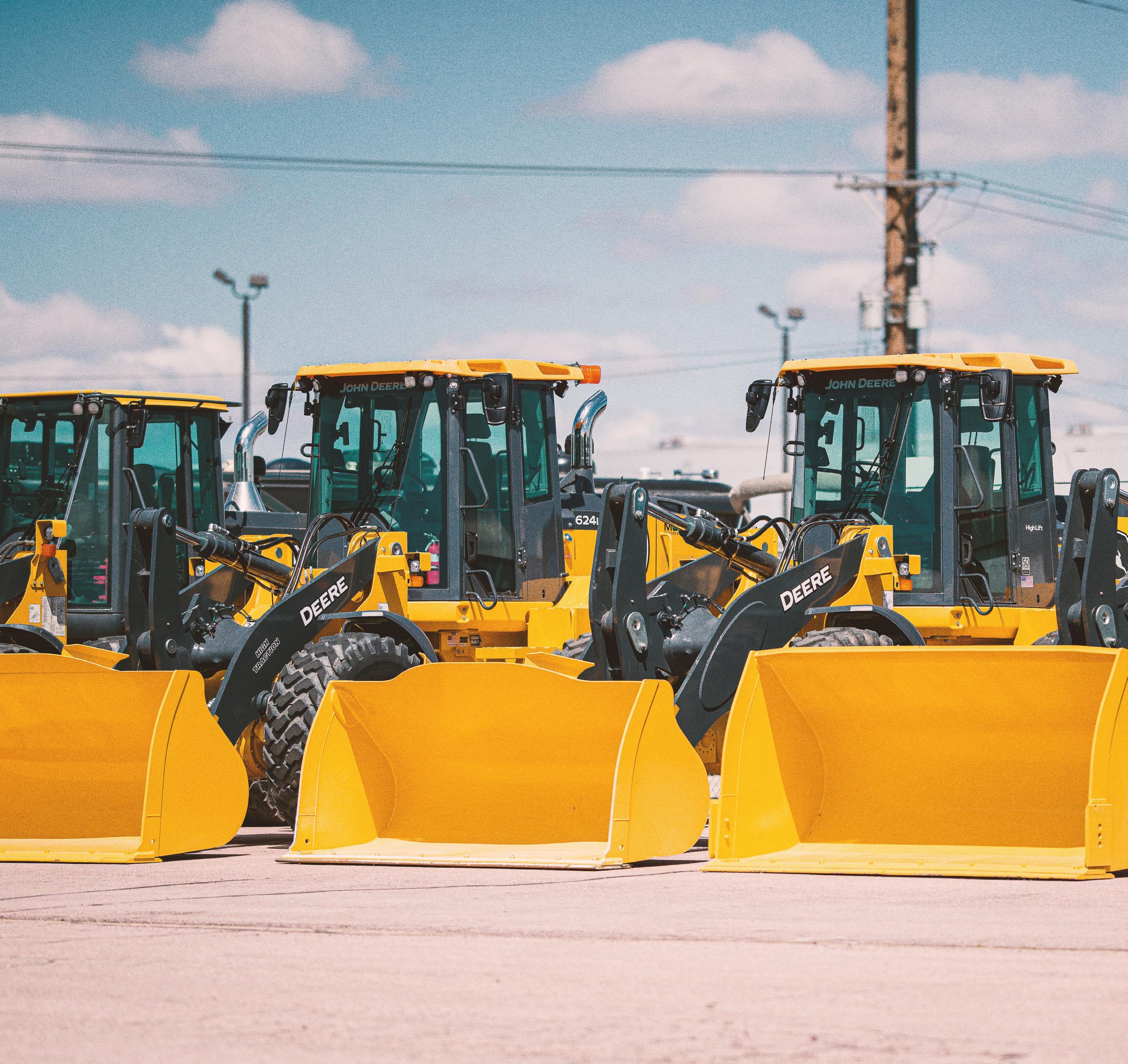
SPRING/SUMMER 2023 5 CONTENTS FIELD GUIDE Equipment Manual 8 Legally Speaking 10 Legislative News 12 Safety Perspectives 14 Risk Management 16 Money Talks 17 FEATURES Member Spotlight 22 Scholarship Recipients 24 NJLICA News 25 DISPATCHES Member Benefit 31 New Members 32 Events 34 Patron’s Directory 35 Contact Information 42 Advertiser’s Index 42
COVER PHOTO BY ARTYOM KORSHUNOR, UNSPLASH;
PHOTO PAGE 5 BY BRIAN STALTER, UNSPLASH

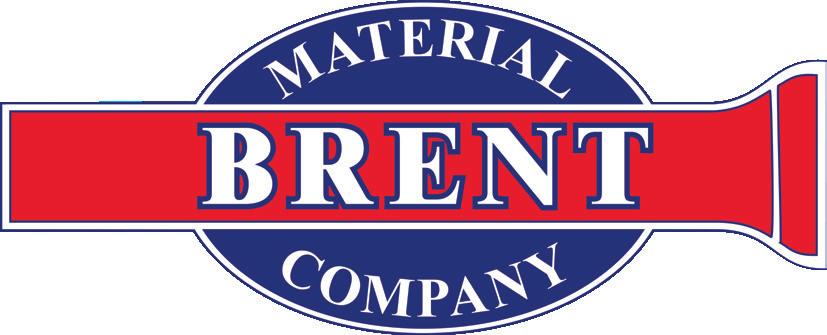
CATERINA SUPPLY INC. SALES OFFICE WAREHOUSE AND YARD 1271 Glassboro Road Williamstown, New Jersey 08094 CELEBRATING 94 YEARS OF SUCCESS www.brentmaterial.com WBE Certified (NJ, DE, NY/NJ Port Authority, NYC, NY State, DASNY) WBENC, WOSB, SBE Certified (NJ) SALES OFFICE 325 Columbia Turnpike, Suite 308 Florham Park, New Jersey 07932 TEL: (973) 325-3030 FAX: (973) 325-7360 7:30 A.M. - 5:00 P.M. Monday - Friday EMERGENCY HOURS BY REQUEST WAREHOUSE AND YARD 308 North 14th Street Kenilworth, New Jersey 07033 TEL: (908) 686-3832 7:30 A.M. - 4:30 P.M. Monday - Friday EMERGENCY HOURS BY REQUEST • WATER WORKS • • STORM DRAINAGE • • SANITARY SEWER • • EROSION CONTROL • www.caterinasupply.com SUCCESS THROUGH SERVICE SINCE 1927 7:00 A.M. - 5:00 P.M. Monday - Friday EMERGENCY HOURS BY REQUEST TEL: (856) 728-0171 FAX: (856) 728-8275 CELEBRATING 37 YEARS OF SUCCESS NJ Certified WBE/SBE, DE Certified WBE/SBF, PA Certified SDB-W/SBF

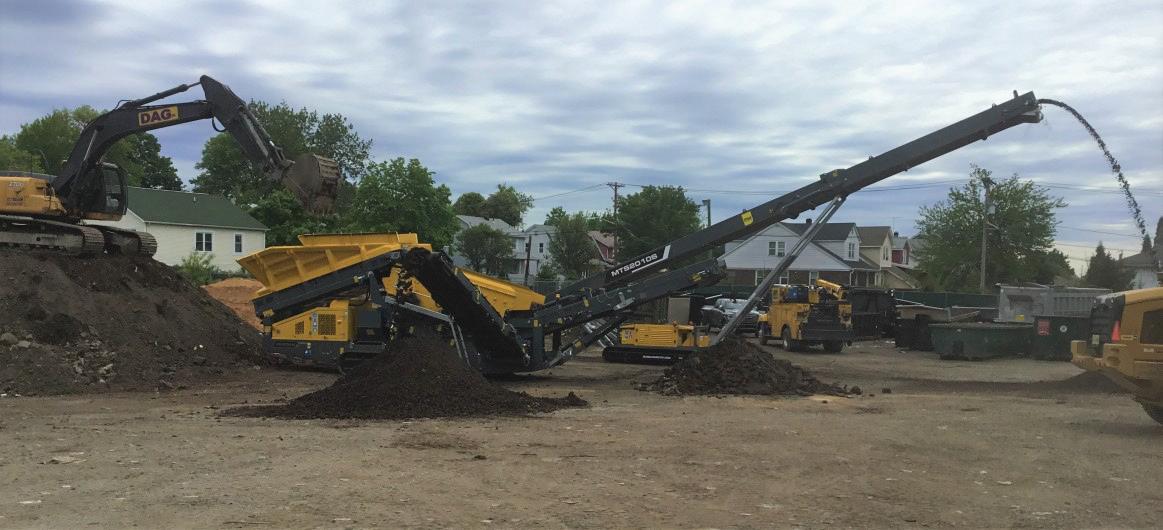

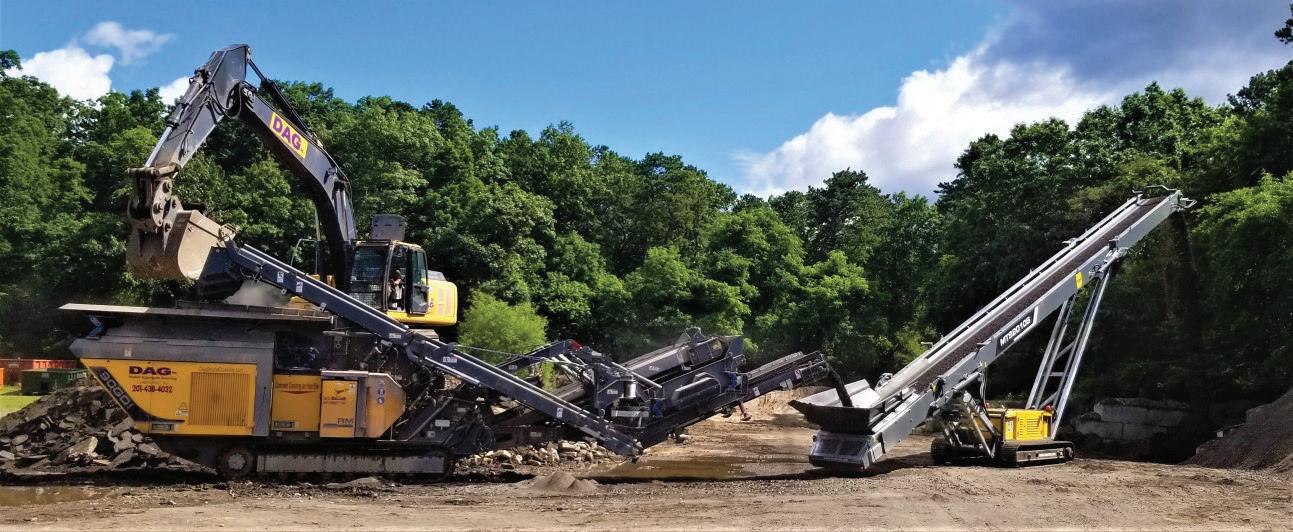



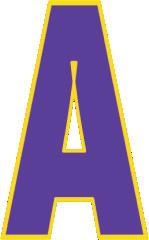















SPRING/SUMMER 2023 7
EQUIPMENT
EQUIPMENT RENTAL TIPS AND BENEFITS
In the construction industry, having access to the right equipment is crucial for successful project completion. However, purchasing and maintaining a wide range of construction equipment can be a significant financial burden for many businesses. That’s where equipment rental services come in as a cost-effective and flexible solution. This article will explore essential tips for renting construction equipment and highlight the numerous benefits it offers.
Assess your project needs
Before renting any construction equipment, it is essential to evaluate your project requirements thoroughly. Consider factors such as the type and scope of the project, the duration, and the specific equipment needed. By identifying your needs, you can ensure you rent the most suitable machinery and avoid unnecessary expenses.

Partner with a reliable rental company
Choosing a reputable and reliable equipment rental company is crucial to the success of your project. Look for a provider that offers a wide selection of well-maintained machinery, prompt customer service, and competitive rental rates. Read customer reviews and ask for recommendations to ensure you partner with a company that values quality and customer satisfaction.
Plan ahead and reserve equipment
To avoid delays in your construction schedule, it is recommended to plan ahead and reserve the equipment you need in advance. Rental companies and equipment dealers often have high demand for specific machinery, especially during peak construction seasons. By making reservations early, you can secure the equipment you require and have peace of mind that it will be available when you need it.
Optimize equipment utilization
Renting construction equipment enables you to choose the right tool for each job without the burden of ownership. This flexibility allows you to optimize equipment utilization by selecting machinery specifically designed for the task at hand. You can rent different types and sizes of equipment as project requirements change, ensuring maximum efficiency and productivity.
Access to the latest technology
The construction industry is constantly evolving, with new and improved equipment entering the market regularly. Renting
BY FRANK HORAN
construction equipment gives you the advantage of accessing the latest technology without the need for significant upfront investments. By using modern equipment, you can enhance project efficiency, safety, and quality, leading to better results and customer satisfaction.
Reduced maintenance and repair costs
One of the most significant advantages of equipment rental is that you are not responsible for maintenance and repair costs. Rental companies typically handle routine maintenance and repairs to ensure their machinery is in optimal working condition. This saves you valuable time, money, and resources that would otherwise be spent on servicing and upkeep.
Cost savings and financial flexibility
Renting construction equipment offers significant cost savings compared to purchasing. You avoid the upfront costs, ongoing maintenance expenses, storage costs, and depreciation associated with equipment ownership. Renting allows you to allocate your capital to other critical areas of your business, providing financial flexibility and improving cash flow.
Renting construction equipment provides a practical and cost-effective solution for businesses in the construction industry. By following the tips mentioned above, you can ensure a smooth rental process and reap the benefits of increased efficiency, reduced costs, access to the latest technology, and improved financial flexibility. Embrace the advantages of equipment rental to enhance your construction projects and stay ahead in a competitive marketplace.
Frank Horan is a territory manager with GT Mid Atlantic, a proud member of NJLICA and an equipment dealer with 15 locations in New Jersey, Pennsylvania, Delaware, and Maryland. “Your #1 source for everything under construction."
8 SPRING/SUMMER 2023
PHOTO COURTESY OF GT MID ATLANTIC
COMPACT EQUIPMENT
When a job is too big to do by hand but too small to justify a full loader, it’s time to call on a compact loader. These machines are often the perfect solution. They’re small and mighty and get the job done fast. It’s no wonder the popularity of compact equipment continues to grow, and with it, equipment manufacturers continue to expand their offerings in the compact category, from skid steers and compact track loaders to compact wheel loaders. But finding the right one for your job shouldn’t be a hassle. A few simple specs can save you time and money in finding the perfect equipment.
Compact loader options
Consider a skid steer or track loader. As one of the industry leaders in compact construction equipment, Kubota’s lineup includes their SSV65 and 75 skid steers and SVL65, 75, and 97 track loaders ranging from 64 to 74 horsepower. These are powerful construction equipment that can withstand the most challenging terrain, featuring twin booms, and climate-controlled cabins, and known for long-term durability. Their state-of-the-art technology ensures that these pieces of equipment are built to last.
The compact wheel loader is a third alternative to the standard SSL and CTL. Compact wheel loaders ranging in bucket sizes from half a yard to 1.5 yards continue to gain popularity in the American marketplace. These models provide better visibility and are easier on turf, while the longer wheelbase offers better rideability. Kubota, Avant, and Hitachi all stand out here.
The Avant rear articulated telescopic loader with over 200 attachments provides seemingly endless possibilities. Particularly popular in tree and property maintenance applications, these loaders offer better fuel economy and versatility than other compact loader options. Hitachi compact loaders, such as the ZW50, offer faster ground speed. Kubota’s workhorses, the R430, R540, and R640, bring power and comfort.
Certain specs are very important for picking your loader. Consider the needs of your project.
• Load capacity: The hydraulics in an ultra-compact skid steer, for example, has about 20 horsepower, enough to lift about 600 pounds of material. A larger skid steer may have over 100 horsepower, sufficient for well over a ton of material. Pick a loader that can comfortably handle your most oversized load.
• Reach: Radial lift booms let the bucket arc forward a bit. Vertical lift booms don’t have an outward arc. Both have benefits, but operators may prefer one system over another.
• Dimensions: Operators often look to compact machines when they need to fit in small spaces. If you’re working with a gate, alley, overhang, or other confined entrance, measure it beforehand and find a skid steer that fits.
• Attachments: Compact loaders come with a wide range
BY MATTHEW SAMS
of attachments, including buckets, loading forks, blades, brooms, and more. Consider which ones you need for your job.
• Auxiliary hydraulics: Extra hydraulics are added at the end of the boom to power specific attachments. Standard hydraulics flow up to 25 GPM, making them perfect for grapplers and augers. Snowblowers and other attachments will require a high-flow system with up to 40gpm.
• Cab design: The cabin often goes under-represented, but it’s an essential feature for the comfort of your operator. Some cabins are open; others are enclosed with air conditioning, heating, and various doors. Depending on your climate, consider the cabin, too.
Renting or leasing
Identifying the compact loader you need isn’t enough. You must also determine what kind of contract works best for your project. There are four options: purchasing new, leasing new, renting to own, or short-term renting.
• Buying new is best for long-term projects with particular needs. You’re guaranteed factory-fresh equipment with a tip-top service record—possibly even some tax benefits. If you already plan to invest a lot of time into a project, owning gives you more control.
• Leasing new works well if you want to control maintenance, taxes, and insurance without as much of an upfront cost. The pros and cons depend heavily on the type of lease and the specifics of the contract.
• Short-term renting awards a lot of flexibility. If you only need the equipment for a short period or a single project, renting removes the long-term commitment.
• Renting to own balances the best of both worlds, letting you use the equipment while considering your long-term needs. If you like the equipment, you get to own it after a given period of time.
All these contracts depend heavily upon what company you sign with. Only sign a contract with a company that respects your uptime with quality parts and services.
Inspection
If you’re buying used, be sure to inspect the following areas carefully:
• Hydraulics: All the lifting depends on hydraulics. Ensure the bucket doesn’t sag and check if the cylinders and hoses leak.
• Engine: Run the engine and listen for any weird sounds. Look out for stuttering, rattling, and smoke.
• Frame: Always check for cracks, rust, or rewelded elements. These imperfections often go unnoticed, but they
SPRING/SUMMER 2023 9
can significantly impact the quality of the equipment.
• Other: You’re likely fine if the hydraulics, frame, and engine work. But to be safe, kick the tires and inspect the inside of the cabin, too.
Summary
Bigger isn’t always better. Compact loaders are small, versatile machines, so look for the right specs and attachments to conquer your project comfortably. The market is full of so many quality brands that it’s often hard to choose. But remember: it’s not just
LEGALLY SPEAKING
NJ PASSES LANDMARK
about the equipment. Whether buying or leasing, you’re forming an ongoing partnership with the dealer. Make sure your partner puts your uptime first. Highway is proud to offer a wide range of solutions from Avant, Hitachi, and Kubota.
Matthew Sams is the general manager of Highway Equipment Company, one of the country’s leading sales, rental, parts, and service providers of highway, construction, oil and gas, mining, quarry, and industrial material-handling equipment.
LEGISLATION EXPANDING TEMPORARY WORKERS' RIGHTS
In February 2023, Gov. Phil Murphy signed new legislation into law significantly expanding the rights of temporary workers. The law, known as the Temporary Workers’ Bill of Rights, is aimed at advancing pay equity, increasing government oversight of temporary staffing agencies, and prohibiting retaliatory conduct against temporary workers. The law applies to workers in designated classifications, including those in the construction labor and trade, building, grounds cleaning, and maintenance occupations. The range of protections afforded by the new law, as outlined below, are expansive and will have significant implications on staffing agencies as well as third-party clients who utilize these agencies to place temporary workers.
New Protections
Equal Pay and Benefits
The most significant protection under the law is the “equal-pay-equal-benefit” provision, which requires that temporary workers be paid the same average compensation rate and benefits (or cash equivalent) that is paid to a permanent employee performing the same or similar work on jobs that require equal skill, effort, and responsibility.

Unfortunately, the law does not address the fact that enrollment or participation in health or retirement plans are governed by the terms of employer benefit plans for which temporary workers generally do not qualify. Additionally, the law does not address those plans that fall under the federal Employee Retirement Income Security Act (ERISA), thereby raising viable preemption concerns. We anticipate that future regulations or litigation will help to resolve these outstanding issues.
BY LISA GINGELESKIE
Notice and Record-Keeping Requirements and Prohibitions
Staffing agencies will be required to provide temporary workers with written notice (in both English and in the worker’s primary language) of key terms of the assignment, including the rate of pay, how much sick time the worker will receive, what type of work will be performed, and the length of assignment. Staffing agencies must keep records of each temporary assignment, including the location of the work site, the type and number of hours worked, and the hourly rate, for a period of six years.
The law prohibits staffing agencies from deducting certain fees from the workers’ paychecks, including deductions for meals and equipment, and from charging fees to transport workers to their work sites. Additionally, the law forbids staffing agencies from restricting the right of a temporary worker to accept a position with a third-party client to whom the worker was assigned or from accepting any other employment. Retaliation against any worker for exercising their rights under this law is also prohibited.
Registration Requirements and Penalties
To ensure compliance, staffing agencies will need to register with the New Jersey Department of Labor whose certification requirements will be overseen by the Division of Consumer Affairs (DCA). Third-party clients are barred from utilizing temporary workers through staffing agencies that fail to register or are deemed disqualified by the DCA.
The law’s notice requirements and anti-retaliation provisions will take effect on May 7, 2023. The remaining provisions become effective on Aug. 5, 2023. Failure to comply with the new requirements may result in penalties up to $5,000.00 per day, per violation. Individuals aggrieved by a violation under the new
10 SPRING/SUMMER 2023
PHOTO BY TINGEY LAW FIRM, UNSPLASH
law may bring a private cause of action for both damages and attorneys’ fees.
Employer Takeaways
Staffing agencies and third-party clients that utilize these agencies to place temporary workers should review their service agreements to ensure compliance with this new law, particularly the notice and pay/benefit requirements. With respect to the latter, third-party clients should also review their benefit policies in an effort to determine whether temporary workers are eligible to

receive benefits under those plans. If benefits are not available, the employer should attempt to calculate and provide the temporary worker with the cash equivalent to those benefits.
Lisa Gingeleskie is a labor and employment partner with Lindabury, McCormick, Estabrook & Cooper, P.C. The company provides litigation and transactional counsel to a broad spectrum of clients in the construction industry. Lisa can be reached at lgingeleskie@lindabury.com.
STATE UPDATES BENEFITS FOR STRIKING WORKERS
It is difficult to dismiss the day-to-day signs of workforces asserting their control over their terms and conditions of employment. Employers have faced the challenges created by cost increases, inflation, and continued challenges in the supply chain and logistics. From a human resources standpoint, employers are faced with challenges attracting and retaining workforces, remaining competitive, and re-engaging their workforces.
In many instances, employers have also absorbed the challenges created by a workforce seemingly more willing to unite and take action against their employers. Large and small employers alike have been confronted with this so-called concerted activity. Activities such as picketing, walk outs, slowdowns, and strikes are seemingly more common and often publicly supported.
According to statistics released by Cornell University’s ILR School, work stoppages caused by strikes and lockouts increased in 2022 by a factor of more than 50 percent compared to 2021. These actions, according to the report, most commonly occurred in the hospitality and food service industries (e.g., Starbucks). Non-unionized settings made up a strong minority: Approximately one-third of the more than 400 work stoppages reported were in non-union settings. Although the majority of the reported 2022 strikes lasted fewer than five days, current workers are seemingly more willing to make their dissatisfaction with employment conditions known to their employers and the public. This is despite low overall rates of unionization. It is important to note that such concerted activity is generally considered a legal right pursuant to the National Labor Relations Act.
Workers engaged in these types of job actions often forego income during periods of concerted action. In many instances, the lack of income ultimately worked to the benefit of the employer. Since employees are rarely able to sustain a prolonged period of lost income, employers had only to wait them out. In other words, employees had no choice but to return on less beneficial terms because they needed a paycheck.
New Jersey’s adoption of A4772/S3215 seeks to address the impact of lost pay during labor disputes. On April 24, Gov. Phil Murphy signed into law protections granting employees expanded access to unemployment insurance during periods of labor disputes.
This new law makes three important changes to the existing unemployment insurance benefit law. Although the law took effect
BY JENNIFER ROSELLE
on April 24, the law expressly extends the benefits retroactive to claims filed on or after Jan. 1, 2022.
The first notable change affects locked-out employees. As the name suggests, a lockout is when an employer denies the workforce access to its workspace unless it submits to certain conditions. In many instances, a lockout is the employer’s response to an employee strike. As baseball fans may remember, and basketball fans recently feared, this is not always the case. It is possible for an employer to impose a lockout even in the absence of a strike.
Prior to the adoption of this law, a precondition to unemployment insurance eligibility required that a strike immediately precede the lockout. With the adoption of the new law, employees who are locked out are now eligible for unemployment insurance, even when a strike does not precede the lockout.
In addition, employees affected by a work stoppage are now eligible for unemployment benefits sooner than in the past. The new law does not create a new right to benefits but shortens or eliminates the period of benefits disqualification. Until now employees affected by a work stoppage were generally deemed disqualified for a period of 30 days.
According to a statement made through Gov. Murphy’s Twitter account, “[w]orkers who express their right to strike over wages, benefits, or workplace conditions shouldn't worry about being able to pay their bills.” The new timelines in the law directly demonstrate that intention. Employees may be eligible
SPRING/SUMMER 2023 11
for unemployment insurance immediately in situations where an employer hires replacement workers. Immediate eligibility attaches regardless of whether these are temporary or permanent replacement workers. In situations where striking workers are not replaced, a 14-day disqualification period attaches.
The final change clarifies that applicants are not disqualified from benefit eligibility when the labor dispute is due to an employer’s failure to follow the terms of a collective bargaining agreement or a failure to comply with state or federal laws governing wages, hours or conditions of work. According to the legislative history, this change is meant to serve only as a clarification of the prior version of the law.
The adoption of this law demonstrates the legislature’s
INFRASTRUCTURE FUNDING: HOLDING STEADY AMONG THE STORMS
Despite tornados and record flooding moving east and political storms building in Washington, New Jersey and the highway industry continues to reap the benefits of the massive $1.2 trillion Infrastructure Investment and Jobs Act (IIJA) passed by Congress two years ago. While failure to act on the debt limit may stall or significantly harm the economy, highway work should continue at its record pace.
In a recent statement before Congress, the American Road & Transportation Builders Association (ARTBA) Chair Paula Hammond said that more than 36,000 federal transportation improvement projects have moved forward in the past 16 months due to the IIJA investment. Hammond acknowledged inflation continues to have impacts on the states’ ability to deliver projects.
“Increased material costs and supply chain challenges undoubtedly have had a dilutive impact on the law’s investments,” Hammond said. But she added, “It’s also clear this situation would have been dramatically worse had Congress opted for another flat-funded extension of surface transportation programs. Our analysis shows there has been real market growth over the last year.”
Congress also recently heard a favorable report from U.S. Department of Transportation (USDOT) Secretary Pete Buttigieg who defended the proposed fiscal year 2024 budget for his agency and its modal divisions. The main highlight of the president’s
continued commitment to expanding protections for New Jersey employees who are involved in labor disputes. For employers, this change indicates that a work stoppage will be more expensive and potentially last longer since employees will have more ready access to unemployment benefits, and may act as an incentive to resolve work stoppages promptly.
For over 30 years, Genova Burns has partnered with companies, businesses, trade associations, and government entities on matters in New Jersey and the greater northeast corridor between New York City and Washington, D.C. If our firm can be of assistance, please reach out to Jennifer Roselle at 973-646-3324 or jroselle@genovaburns.com.
BY NICK YAKSICH
FY 2024 budget request, according to analysis by the American Association of State Highway and Transportation Officials (AASHTO), is that funding levels authorized under the IIJA continue unimpeded, with $80.3 billion provided via contract authority for trust fund programs and $36.8 billion in advance appropriations.
Concurrently, the administration is requesting $27.8 billion in discretionary budget authority from the General Fund, which is traditionally where congressional appropriators focus as part of the Transportation, Housing, and Urban Development (THUD) annual funding package.

Specifically, AASHTO said the Biden administration seeks to cut out congressional earmarks and zero out certain General Fund supplements to the Federal Aviation Administration, Federal Highway Administration, and Federal Transit Administration formula programs that have been the norm in recent years. At the same time, the president seeks to ramp up funding for USDOT’s Mega discretionary grants programs, various Federal Railroad Administration programs, and FTA Capital Investment Grants, with a net discretionary funding reduction of $882 million in FY 2024 compared to FY 2023.
Buttigieg added that “unprecedented funding” from the IIJA is helping “modernize and improve” the nation’s infrastructure at a rapid pace and that the proposed FY 2024 budget for USDOT will help support that momentum.
12 SPRING/SUMMER 2023
LEGISLATIVE NEWS
PHOTO BY JOSHUA SUKOFF, UNSPLASH
“Shovels are hitting the ground on new projects all over the country. To date, we have announced over $200 billion for over 23,000 projects nationwide, and we are continuing to get funding to communities as swiftly as we responsibly can,” he said. “Aside from getting money out the door for more good projects, we’re also using our regulatory and enforcement authorities to protect and advocate for the traveling public. In short, there’s a great deal of work underway, and a great deal yet to be done.”
There is one significant IIJA provision implementation challenge facing the highway industry: the Build America, Buy America Act (BABA). ARTBA supports the clear congressional intent to grow domestic manufacturing capacity in the long-term. Their concern relates to the potential for short-term disruptions of projects emanating from the IIJA’s new requirements in this area.
For more than 40 years, Buy America has required a domestic manufacturing process for iron, steel, and certain manufactured products permanently incorporated into federal-aid highway and transit projects. The IIJA expanded Buy America coverage to five categories of construction materials (non-ferrous metals,

plastic, polymer-based products, glass, lumber, and drywall). After USDOT deferred this new requirement for six months, it took effect on Nov. 10, 2022. At the same time, the department proposed narrow waivers from Buy America requirements for items falling under modest de minimis thresholds and for the smallest of federal-aid projects. It also proposed (and finalized on January 30) a waiver of the construction materials requirement for projects in advanced stages of procurement or for which contracts were already in place. More than 16 months following the IIJA’s enactment, many of the parameters for Buy America implementation remain unsettled, underscoring industry’s concerns about potential disruption of projects.
So with the storm clouds fading and warm weather approaching, the influx of federal infrastructure investment should produce a banner year for contractors and provide users a safer and more efficient transportation system.
Nick Yaksich serves as the director of government affairs for LICA.
STEER CLEAR OF THE MOST COMMON CLEARINGHOUSE MISCONCEPTIONS
“I don’t have to do Clearinghouse queries; participation is optional.”
No. It’s NOT optional. It is 100 percent mandatory for all carriers and all drivers operating within the United States. Let’s remember when we must run each query.
Pre-employment requirement
A full query must be run on all drivers hired or contracted on or after Jan. 6, 2020, prior to putting a driver behind the wheel of a truck. This applies to all CDL holders (all class types) that operate on roads within the U.S. (even Mexican or Canadian drivers). A full query provides all information about a driver’s violation history reported to the Clearinghouse. The driver must be listed as Not Prohibited before they can begin driving for a carrier.
Annual requirement
For ALL drivers operating under a carrier’s authority, a limited query must be run annually. A limited query result is either Not Prohibited or Records Found. If the result is Not Prohibited, the driver may continue operating a CMV. If the result is Records Found, a full query must be run, and results must be received within 24 hours of the limited query results. (If you use Tri-State Safety as your TPA, we automatically run the full query if a limited query comes back with Records Found, another example that TPAs are not all the same). If the result of the full query is Prohibited, the driver must be immediately removed from operating a CMV.
By Jan. 6, 2021, limited queries must be run on all drivers employed or contracted prior to Janu.6, 2020. The pre-employment query run on drivers after Jan. 6, 2020 is good for one year. A limited query must then be run at least once a year after receipt of the pre-employment query for as long as the driver is operating under the carrier’s authority.
“I only have to run limited queries on drivers I hire, and I don’t have to run a full query unless I get a hit.” No. The regulations require a full query pre-employment at the time of engagement, prior to placing the driver in a truck. A full query should be run on any driver hired or contracted on or after Jan. 6, 2020. Limited queries meet only the annual requirement and will not suffice for a pre-employment Clearinghouse check.

“The driver signed the written consent I have with my application; that’s all I need to get a full query.”
Understandably, consent may be the biggest source of confusion for carriers and drivers. There are two different types of consent depending on the type of query you are running. Here’s the breakdown:
BY ANTHONY MORREALE
• Full query: driver consents within the Clearinghouse. The driver must complete the registration process with the Clearinghouse, which requires setting up an account, entering authentication information, and verifying their CDL. This process is not simple, but once a driver goes through the registration process, they must provide consent within the Clearinghouse to release the full query information to a requesting carrier. Once that occurs, the carrier will receive the results of the full query.
• Limited query: driver consents in writing obtained outside of the Clearinghouse. The limited query consent must be in writing and signed by the driver (an electronic signature is fine). Since carriers will eventually need the limited query consent signed by ALL drivers to comply with the annual requirement, most carriers get the limited consent signed in connection with the application so it’s on file when a limited query needs to be run.
“Once a driver’s full query returns as Not Prohibited, I don’t need to do anything for a year.”
Not necessarily. Information about a violation can be added to the Clearinghouse at any time. A carrier will be notified if the information is added to a driver’s Clearinghouse record, but only within 30 days of running a full query. To find out what information was added, another full consent must be obtained from the driver within the Clearinghouse.
For example, if you initially ran a full query and got a Not Prohibited result and the driver is now operating under your authority when you get a notification that new information has been reported to the Clearinghouse, YOU NEED TO ACT QUICKLY! This means that a violation has been reported about that driver to the Clearinghouse, and most likely, the driver is now prohibited from operating a CMV.
From a risk management perspective, it may be a good idea to run a limited query more often than just annually. Remember that a carrier will not be notified if violation information is added to the Clearinghouse after 30 days from the full query unless a limited query is run. Violations can be reported to the Clearinghouse from other carriers conducting pre-employment drug screens or if the driver operates under multiple authorities. For this reason, running a limited query more than annually would catch any violations and help reduce the potential liability associated with having a driver operating under your authority that has a violation reported to the Clearinghouse. Similarly, you want to make sure your full query is conducted within the 30 days before actually bringing a driver on board so that you can get updates if the driver had a violation that caused them to leave the prior employer.
14 SPRING/SUMMER 2023
SAFETY
PERSPECTIVES
PHOTO BY POP & ZEBRA, UNSPLASH
“I don’t need to go back and run queries for the drivers I hired when the Clearinghouse had technical difficulties.” Yes, you do. As you may know, the Clearinghouse experienced technical difficulties for several weeks shortly after going live. During those technical difficulties, the FMCSA allowed carriers to hire drivers using only the procedures under 49 CFR 391.23 for employment verifications. However, the FMCSA has said that carriers must go back and get full queries for all drivers hired when the Clearinghouse was experiencing technical difficulties.
If you hired a driver during that time and then by the time the technical difficulties were resolved, the driver was no longer
HIGHWAY CONSTRUCTION SITE SAFETY
Highway construction presents many hazards that we seldom experience in other construction activities. The hazards of traffic and carbon monoxide as well as fumes and excessive heat from asphalt are only a few of the substances that present hazards on the construction job site. The change from the cold weather hazards of winter work to the hazards encountered during summer and fall will require a change in the personal protective clothing required and is just one adjustment that must be made.
The hazards of warm or hot weather can present heat stress considerations that must be addressed:
• Always have enough cool water available for the number of workers on the job site to address hydration requirements.
• Create a cool rest location for workers who develop heat stress. This may be shaded areas, cool buildings, or even air-conditioned trucks and machinery.
• Provide heat stress awareness training for workers, safety officers, and competent persons, which must include appropriate treatment for affected personnel.
• Consider changing the time of day if it is available to accomplish labor intensive activities.
• Rotate personnel to limit exposure time.
These must be considered when estimating the cost factor when submitting a bid, and they are vital when providing a safe worksite as required by OSHA.
Many other hazards present themselves in the warm months. Exposure to the sun, heat, and humidity are just the tip of the iceberg. Poisonous plants, insects, and wild animals can often present many serious hazards to workers during the warmer weather. These hazards will naturally occur on construction sites and must be addressed. The use of sunblock and insect repellent may be required for worker protection and may be needed for a safe and healthier worksite.
Other hazards may exist on the worksite that is generated by the type of work that is being accomplished. These hazards may include the production of dangerous vapors such as carbon monoxide, hydrocarbon vapors from asphalt work, and silica dust
working for you, it is recommended you place a note in the driver’s qualification file explaining the circumstances.
Save your company a fine and possible FMCSA audit. You should have a Clearinghouse process in place so that you can keep up with compliance.
Anthony Morreale is the owner of Tri-State Safety Solutions, a provider of health, safety, and environmental compliance training and consulting as mandated by city and state agencies.
BY H.K. CARR
from concrete and cement activities. Exposure to asbestos can be generated from several construction work environments. Many of these hazards require the use of extra personal protective equipment, which may also present additional heat stress.
It is suggested that all personnel be provided with basic first aid knowledge to address these hazards on the jobs ite.
These are hazards that occur on any job site and a response plan should be in place on how each circumstance will be addressed should they occur. This is required by OSHA if you have 10 or more employees. All employees must be aware of the plan and how to implement it as required.
I have mentioned many construction hazards, but these are not all. Many other work-related hazards exist. Construction work of all types is rated as one of the most hazardous professions that you may work in, and it requires all of us to make sure that what we do is the safest way to accomplish the required work. This allows us the best chance of going home safely at the end of our workday.
Have a great summer and do not become a victim of a construction hazard.
H.K. “Skip” Carr and his wife, Judy, have operated H.K. Carr & Associates, a training company focused on OSHA compliance and construction safety, for over 30 years.
SPRING/SUMMER 2023 15
STEPPING OUT OF THE INSURANCE BOX
Every construction company is different. Each company has its own corporate identity and its own way of doing things. Insurance programs that take a cookie-cutter approach to risk exposures do a pretty good job at defining and including coverage for a majority of construction exposures that can create a claim.
Insurance is a multi-faceted diamond, as is the construction company who creates risk exposures beyond the scope of every specialty insurance program. Reliance on the packaged deal may not completely fit the bill. While it may not be possible to anticipate every future loss, it is still important to take a hard look at what the company does and what it owns in comparison to the policy coverage purchased.
For example, a paving contractor who is working in a condominium development parking lot will buy a golf cart to move the condo owners back and forth to a temporary lot further away. This is a terrific idea, and it helps the condo owners cope with the paving process. However, it is not automatically covered so coverage must be added for this exposure not only because of the nature of the vehicle, but also how it is being used. In both cases, the auto policy needs to be endorsed to cover this new exposure.
The idea is to step outside of the specialty insurance package and look for things that can create losses that may not be covered. There are all types of things that can create a loss, and in most cases, there is a policy or an endorsement to provide needed protection from that loss. The key word here is needed. There may be an evident exposure that can create a loss, but do you want to insure it? Some companies are more risk averse than others. Some companies have deeper pockets and can afford to take on the risk of a loss. In either case, once a loss potential is discovered, it is up to the individual company to decide whether or not to insure it. (Unless it is a mandated coverage, then you have no choice but to insure it.)

Outside of the insurance package, there are many things with the potential to give you an unwanted surprise. Pollution can be a problem, particularly for grading and excavation contractors. While you are not bringing the pollutant to the job site, it is possible to hit an underground tank and release the contents which would contaminate the surrounding area.
Another contractor may bring a skid tank on site to fill equipment with diesel. That tank can release its contents because of an accident or vandalism. Any company can own property that was backfilled years ago with contaminated soil and unknown by anyone today.
There might be ownership of a building that was previously occupied but is now vacant two months after the tenant moved out. You might be a tenant in your building and add some improvements to it like a new bay or lift, new garage doors, or permanent storage racks for inventory. Then there is the flood exposure. Are you in a flood zone? Do you store your vehicles and equipment there in the yard? Do you have a flood policy? Does
BY MICHAEL PUGACZEWSKI
your contractor’s equipment floater cover flood? If so, where? Is there coverage in the yard and out at the job site? There are also earthquakes which affect certain regions worse than others. You can buy insurance for that as well.
Don’t forget your toys. There are boats, golf carts, antique cars, four wheelers, snowmobiles, and drones which can also be used in your business. There is special insurance for all of these things. Perhaps you own a 36-foot sport fishing boat and like to take customers out for a day of fishing. Check your business policy for coverage.
The commercial general liability policy covers losses triggered by bodily injury or property damage and, in some cases, loss of use claims. There are many other possible losses not related to these coverage triggers. Running a company, public or private, can give rise to claims for wrongful acts through mis-management, failure to perform contractual obligations, or discrimination, whether real or imagined. If you are offering a pension program, you may have fiduciary exposures of which you are unaware.
There is more, of course. There is medical insurance, life insurance, and many other insurances, but the intent is not to make you an insurance expert. The intent is to build an awareness of the things we do in our business every day that have the potential to expose the company to a loss. This loss may have a quick fix with a simple endorsement, or it may be a loss that you find reasonable to assume without insurance.
We suggest that you meet with your insurance professional and candidly discuss your operations, including all of the ancillary things you do relating to the company. As you identify potential loss exposures, talk about how you want to handle them. Make your decision to insure or not to insure, or find another way of dealing with the exposure, such as elimination. It is important to know how you are handling a loss before it happens rather than trying to figure out what to do after it happens.
16 SPRING/SUMMER 2023
RISK MANAGEMENT
PHOTO BY LOIC LERAY, UNSPLASH
Michael Pugaczewski is the chief executive officer at M. Adams & Associates, which provides insurance products and services to construction, commercial, and industrial companies.
TO KEEP THE BEST, LICA MEMBERS SHOULD OFFER THE BEST
According to the consulting firm of Wolters Kluwer, “Benefits are a critical piece of an employee compensation package, and health care benefits are the crown jewel.” Health care benefits are the most popular of benefits to employees. Every employer must at least consider whether to offer these types of benefits, and in some cases employers must offer health care in order to remain competitive with other businesses for the most talented employees. Another reason why many employers choose to offer health care benefits is so that they themselves can take advantage of less expensive health benefits than they could get on their own. That’s why LICA created its own health plan exclusively for LICA members.
LICA Members should consider the advantages to the LICA Health Plan.
It can reduce absenteeism.
A healthy employee is present and more productive. And the more physically sound workers are, the less prone they are to injuries and less likely they are to miss work.
It can be a recruiting tool.
Sought-after employees often have the advantage in negotiating job perks and benefits. If a potential employee is deciding between two jobs (or if a current employee is thinking of leaving), benefits like a superior health plan can tip the balance in your favor.
MONEY TALKS
BY TRUE & ASSOCIATES
It can increase retention.
Employees are more likely to stay with a company that offers valuable health benefits, as they can be far more costly to replace on an individual basis.
It can boost employee satisfaction.
Workers tend to place higher value and feel more favorable about jobs and employers that provide good health benefits.
It’s convenient.
Don’t underestimate the convenience factor for your employees. Spending time and effort looking for private health coverage on healthcare.gov or on a state-sponsored online health exchange can be confusing and stressful. When you offer employer-provided group health coverage, your employee can choose your plan and avoid that search.
Find out more about the LICA Health Plan today by contacting your World Insurance Agents: Vincent Basciano, 973-871-1512, vincentbasciano@worldinsurance.com; Terence Gorman, 848456-8600, terencegorman@worldinsurance.com.
FIRST-QUARTER OBSERVATIONS ON THE CONSTRUCTION INDUSTRY
We have braved the cold, short days of winter and are squarely in the start of spring as the weather is warming and the sun is setting a touch later. And with this change of the seasons comes the start of the second quarter of 2023, a year the construction industry came into with caution and uncertainty.
We kicked off the year with plenty of unanswered questions around awarded projects commencing, when we will start to see infrastructure spending, labor challenges, and the ongoing battle with inflation, which continues to spur interest rate hikes.
With the first quarter of 2023 behind us, do we have any clearer answers now? As an advisor, student, and practitioner of the construction industry, it felt only natural to reflect on and share some observations and takeaways from what we have experienced over the last three months.
BY CARL OLIVERI
Financial results are shaky
The renaissance the construction industry experienced in the years leading up to and through 2019 are well documented: record levels of spending across all sectors and employment at its highest. And we all know what happened as we pushed into 2020, specifically March 2020 (the irony of writing a state-of-the-industry piece almost exactly three years later is not lost on me).
When the COVID-19 pandemic hit, nearly every business, regardless of the industry, was impacted. But the construction industry had one thing others didn’t: committed backlog. Plus, most contractors qualified for the Paycheck Protection Program (PPP) and Employee Retention Credit (ERC) programs, so the financial pain of the pandemic was masked. Flashforward to 2022 and backlog had dwindled, replacement work was hard to find, government assistance programs had ended, and the natural lag
SPRING/SUMMER 2023 17
of the construction industry caught up to us. Not surprisingly, financial results of contractors for 2022 were meek. Put more directly, the 2022 financial results that surfaced during the first quarter of 2023 are showing the construction industry is experiencing what most companies/industries felt in 2020.
Adjusting to inflation
Another economic event that does not discriminate, inflation has made its mark across most businesses and households. And while it continues, the construction industry has adjusted to the rising costs of materials, taken proactive steps to alleviate supply chain issues, and modified employee compensation packages accordingly. While the absorption of rising costs depends on the circumstances at hand, the primary tool to battle inflation — interest rates — has cost contractors real dollars in their bottom line as rates have increased and continue to rise. The private construction sector has experienced substantial fallout as spending has slowed due to the cost of borrowing. Not to mention, the common practice of utilizing a line of credit to mobilize projects as requisition funding is pending has become extremely costly. The best summation is what one industry executive shared with me: “It scares me when I see contractors bidding a project at a margin that is less than their line of credit rate.”
The banking shakeup

The country hadn’t seen a banking crisis since 2008. Coming into this year, a banking crisis (or maybe this was more of a shakeup) was an event we didn’t expect to encounter. Seemingly emerging overnight in mid-March, Silicon Valley Bank and Signature Bank made headlines as a result of weak investments and cryptocurrencies. In an age of market perception becoming reality regardless of fact (thanks to social media and the 24-hour news cycles), confidence in both banks was shaken to a point where we saw depositors lining up to withdraw enough funds to cause the banks’ collapse. Like 2008, the federal government stepped in to assist by securing all deposits, and in Signature’s case, facilitated a soft landing for customers and personnel. Regardless, the damage was done as numerous contractors either moved or started the process of moving away from Signature. For the New York construction market, there is one less bank dedicated to the construction industry, and we will need to watch closely how Flagstar Bank navigates the market after acquiring Signature. If you missed our recent guidance on what your construction company should do to mitigate banking risks in this environment, go to grassicpas.com/blog/because-construction-isnt-risky-enough-mitigating-banking-risks/ to read the full article.
Infrastructure spending
The need for the United States to invest and improve our infrastructure is dire. And Washington has recognized and taken steps to address this by passing the Infrastructure Investment and Jobs Act, which will see $1.2 trillion authorized for transportation and
other infrastructure spending, with $550 billion earmarked for new programs. Interestingly enough, a tradeoff in the passing of this legislation was the repeal of the ERC program for the fourth quarter of 2022, which most contractors qualified for in the first three quarters. Even as we hear about the billions of dollars being released and allocated to the states, the projects are MIA. Looking at where we are locally and the robust capital spending plans our public agencies have teed up, we cannot help but wonder how much is reliant on federal dollars?
Looking back, it was an eventful three months, even though it was only three months. The construction industry will look at the rest of 2023 to rebound from shaky 2022 financial results, stabilize their banking positions, and hopefully start to see work in both sectors emerge. The industry continues to be a major driver of jobs and opportunities across the country.
As the second quarter continues, Grassi’s construction team will continue to monitor industry trends and share proactive advice and insights to navigate the landscape.



Carl Oliveri is a construction practice leader with Grassi. He specializes in project-centric and companywide financial modeling, operational strategy development, financial statement attest services, and income tax method analysis. Carl can be reached at
Scheideler Excavating Co.
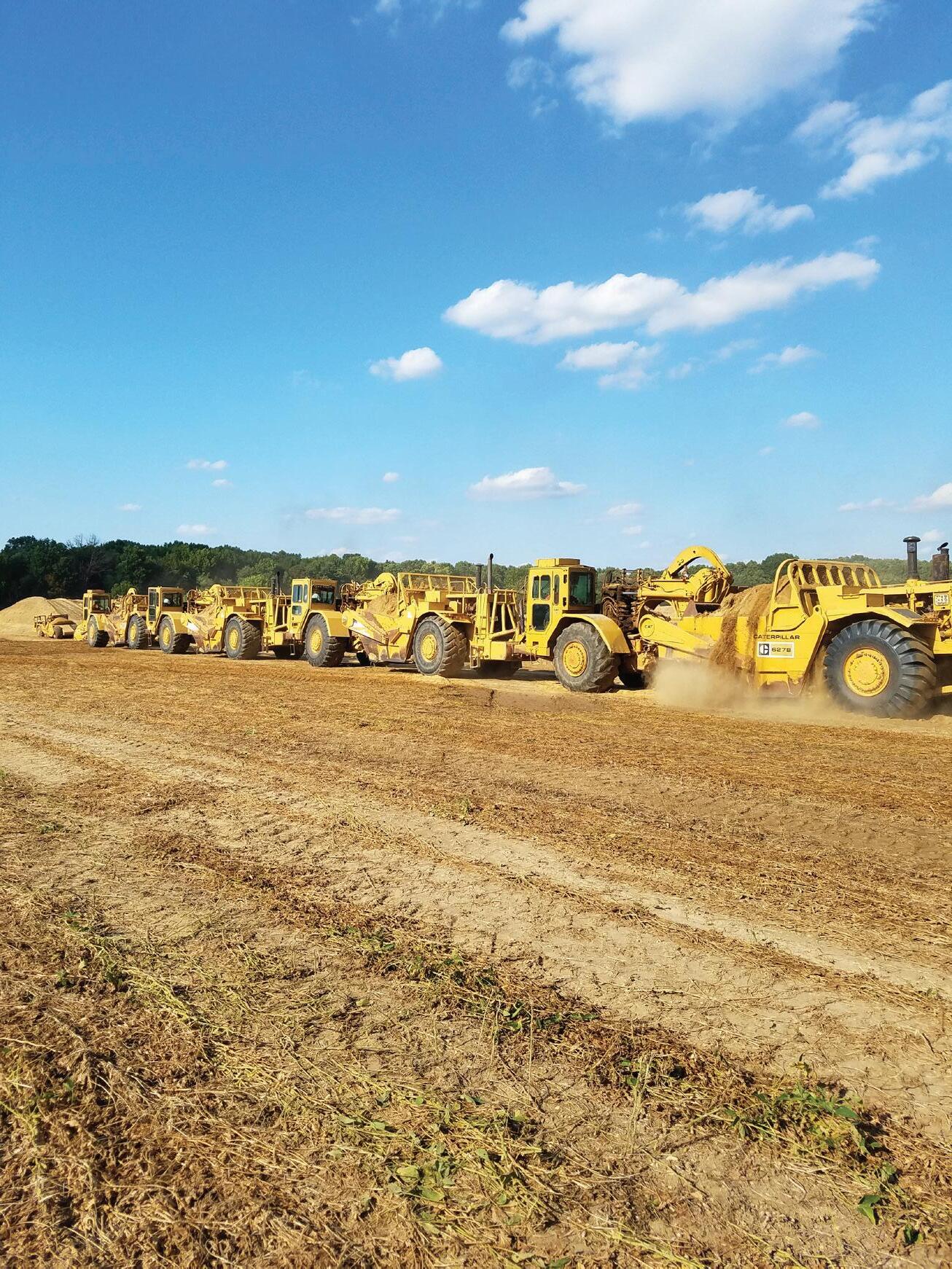
18 SPRING/SUMMER 2023
PHOTO BY DMITRY DEMIDKO, UNSPLASH
Carl Oliveri, CPA, CCIFP, CFE, MBA Partner, Construction Practice Leader

Advisory | Tax | Audit
Certainty is what we have delivered to the New Jersey Construction industry for over 40 years.
Construction advisors and accountants provide the industry knowledge and guidance that construction professionals need to make confident business decisions.
grassicpas.com/construction
Grassi’s
FOR MORE INFORMATION VISIT US AT

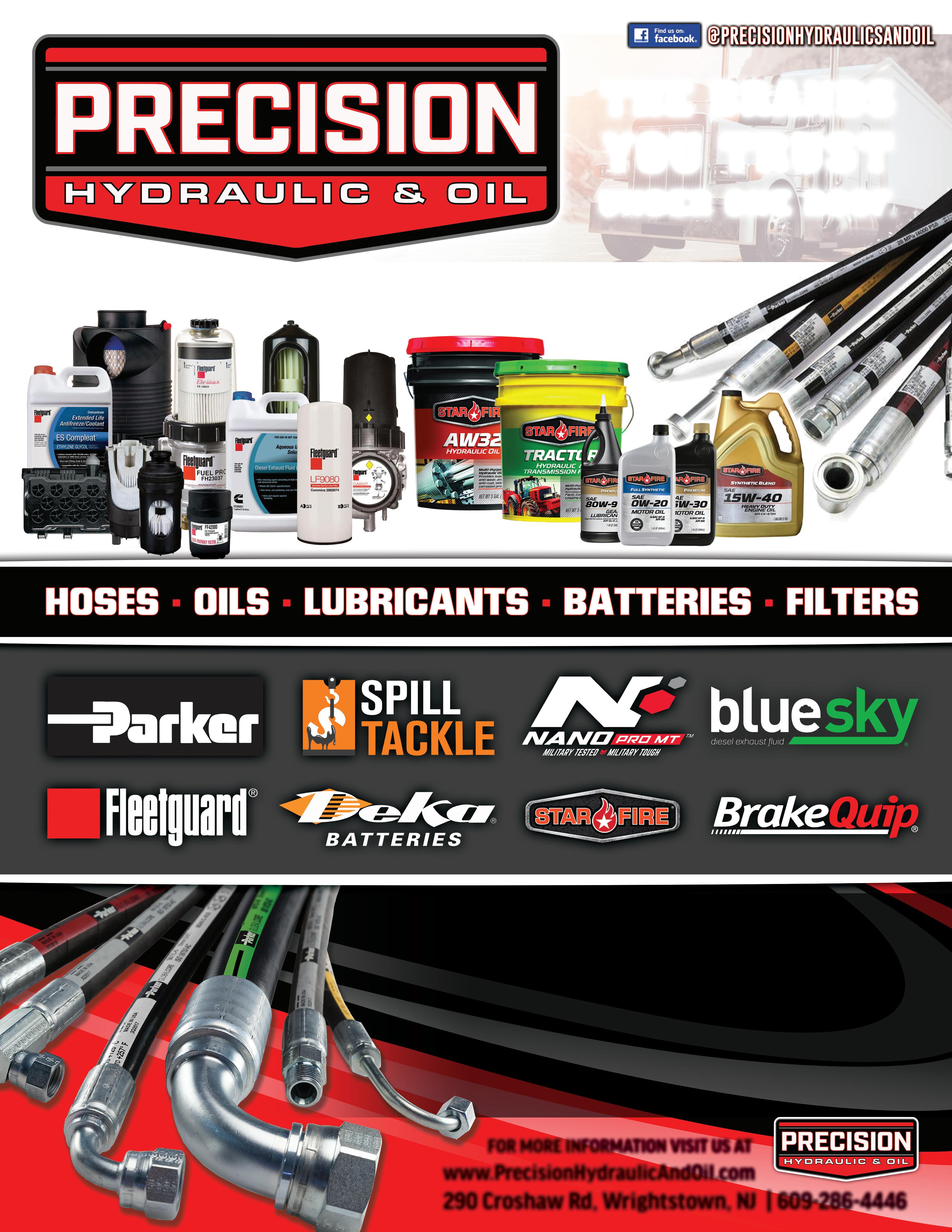
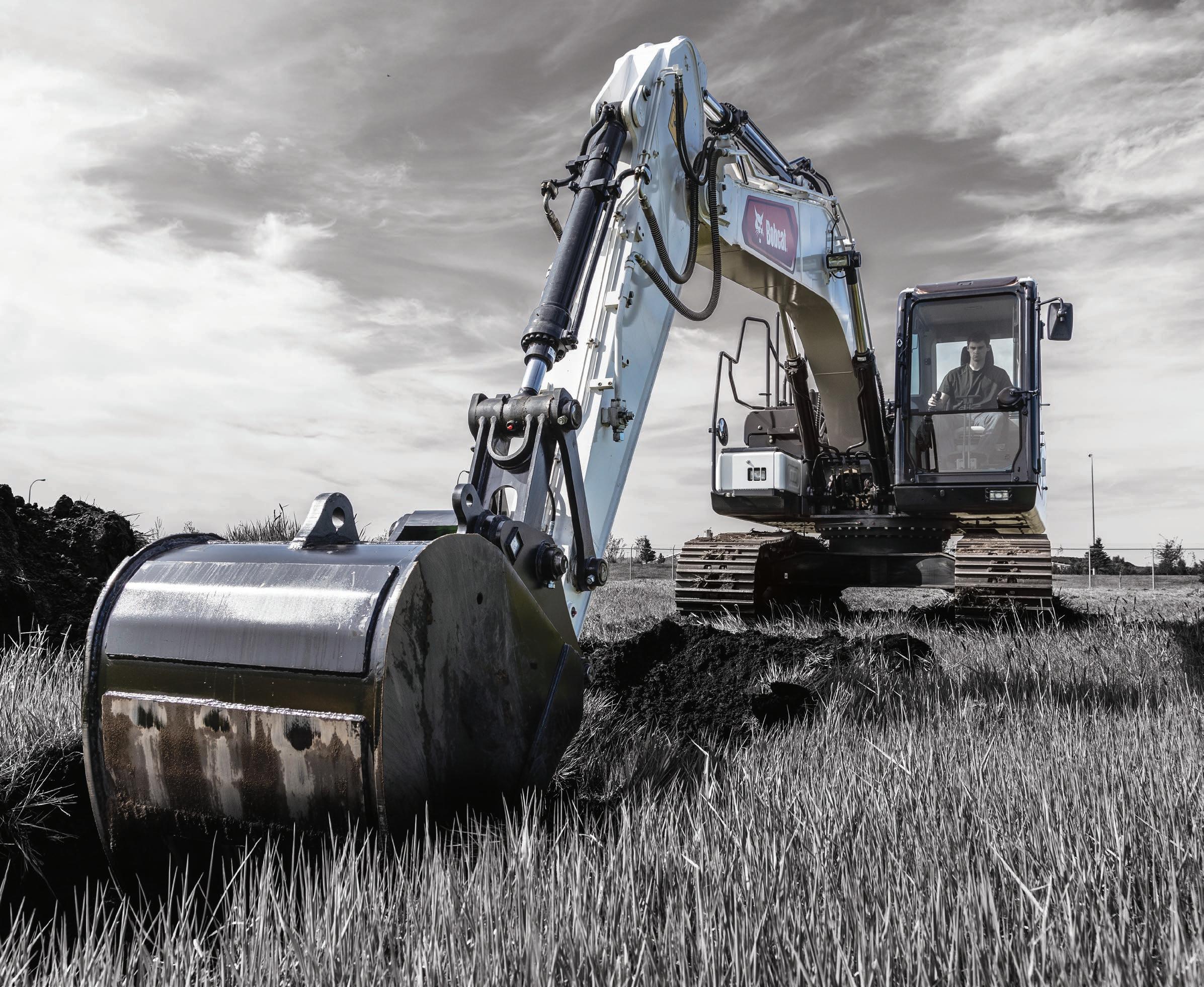
of Nort h Jersey Bobcat of North Jersey 201 MALTESE DRIVE TOTOWA , NJ (973) 774-9500 http://www.njbobcat.com Bobcat ®, the Bobcat logo and the colors of the Bobcat machine are registered trademarks of Bobcat Company in the United States and various other countries. ©2021 Bobcat Company. All rights reserved. 14520937 Bo B ca t .com/Large e x cavators When your work calls for big performance and productivity for difficult jobs, step into new large excavators from Bobcat. Sometimes, bigger challenges demand a bigger excavator. New Bobcat ® large excavators will measure up and then some. 0% Financing Available Contact our Sales Specialists Patrick Barckett 201-446-0127 Patrick.Barckett@NJBobcat.com Craig Dahl 201-788-4838 CraigD@NJBobcat.com
Caputo 973-800-5097
Kunkel 973-800-7109
Steve
Steve.Caputo@NJBobcat.com Sean
Sean.Kunkel@NJBobcat.com
SPOTLIGHT
JEFF SALMON / SALMON BROS., INC. MEMBER
Salmon Bros., Inc. has been around a long time. How long? Long enough that the crew worked on building New Jersey’s first concrete highway, route 57 in Warren County. Since its launch by Herbert King Salmon and his brother Jerre in 1896, Salmon Brothers has been responsible for the construction of several key New Jersey infrastructures. Among other projects, the company constructed the Morristown Sewer Plant in 1910, built the Landing Road bridge over the Morris Canal and railroad for $12,000 around 1910, and built route 206 (then route 31) from Netcong to Andover in 1928.


And in all those years, the company has remained a family business. From Herbert and Jerre, the business passed to Herbert King Salmon Jr., Bill Salmon, and Jerre Riggs, and then to Tom Salmon, Tim Salmon, Jeff Salmon Sr., Jetur Riggs, and Jerre Riggs Jr. These subsequent generations expanded the company’s services from mostly road building to golf course construction. In the 1960s, Salmon Brothers built Bowling Green Golf Course in Oak Ridge, and did site work for Crystal Springs Golf Course in the late 1980s. Today, the company does bridge and dam work, pond dredging, stormwater management, and snow removal.




Jeff Salmon Jr. is now the fourth genera tion to be involved in the family business. He un officially began working for the company when he was 12, visiting job sites and running a backhoe, or working around the shop. At 18, he officially made the payroll as a labor and equipment operator before moving to the office in his early 20s. Today, Salmon does the estimating, project management, and site supervision for the company, working alongside his dad, Jeff Sr., and his uncle Tom, who is semi-retired. (And at 82, is still a great bowler.)

Recent projects include a dredge and dam repair for Colonial Park in Somerset County, various culvert replacements for Morris County, and an electrical improvement project for a veterans’ affairs hospital in Salisbury, N.C. When paper company Compac Corporation experienced flooding issues, Salmon Brothers removed the dam behind Compac’s factory to stop the problem.

Salmon believes having more than 120 years

22 SPRING/SUMMER 2023
of experience in the industry is what sets the company apart from others. While the older generation of Salmons are mostly retired, they still can usually be found around the office and are a great sounding board for ideas, as they’ve encountered most situations that come up when running a business. But in recent years, NJLICA has also played a role in the success of Salmon Brothers.
“Not only do I enjoy networking with companies we typically wouldn’t deal with, but ever since they’ve started the apprenticeship program, that’s been a big help to us to be able to continue to do public work,” he says.

But for Salmon, the most important aspect of the business is the family that has run it for the past 120 years.
“That older generation was very big on handshake agreements meaning as much as signed contracts do,” Salmon says. “They really have taught me the importance of that relationship with customers. I love that I’m carrying on the family tradition.”
Kelley Freund is a freelance writer based in Virginia.
Photos previous page:
Top photos, l-r: oiling a roadway in the early 1900s; snow removal in the early days of Salmon Bros., Inc; a dragline crane on a jobsite.

Photos t-b, l-r: Herbert King Salmon; Herbert King Salmon Jr.; a fleet of company trucks; the crew on a Sussex County bridge; culvert work.
Top right photo: construction of St. Michael's Church in Netcong.
Photos this page: Top left: a CAT D8.
Bottom l-r: Christmas float; culvert work

Top right: Jeff Salmon and family

SPRING/SUMMER 2023 23
“
”
THAT OLDER GENERATION WAS VERY BIG ON HANDSHAKE AGREEMENTS MEANING AS MUCH AS SIGNED CONTRACTS DO. THEY REALLY HAVE TAUGHT ME THE IMPORTANCE OF THAT RELATIONSHIP WITH CUSTOMERS. I LOVE THAT I’M CARRYING ON THE FAMILY TRADITION.
JULIANNA CHESLA
Monmouth University
Alpine Construction Group, Inc.
ISABELLA BAGNATO
Sacred Heart University
Reggio Construction, Inc.
JONAH BESTERMAN


2023 SCHOLARSHIP RECIPIENTS NJLICA
Rutgers University
David Weber Oil Company, Inc.
FAITH CARLSON
Castleton University
W. Carlson General Landscaping
TRISTAN DAVISON

University of Oklahoma
Robert W. Wogisch Landscape Contractor

ASHLEY DOWNES
Skidmore College
Dave O'Donovan Excavating, Inc.
NATHAN HITCHNER
Rowan University

Michael A. Hitchner Hauling & Excavating
FAITH MACCHIONE

Stevens Institute
Of Technology
A. Macchione Brothers, Inc.
GRACE PIECHOWSKI







Florida Atlantic University
Wantage Excavating Company, Inc.
MEGAN VETTER
Colorado State University
George Vetter Landscaping
CASSIDY VIERSMA
Messiah University
Bob Viersma & Sons, Inc
MCKENZIE VIERSMA
Binghamton University

Bob Viersma & Sons, Inc.
CHARLIE WOGISCH
West Virginia University
Robert W. Wogisch
Landscape Contractor
EMMA WRIGHT
Providence College
Cut Wright LLC
24 SPRING/SUMMER 2023
NJLICA DUES AND ERISA TRUST CLARIFICATION
The NJLICA dues year runs from September 1–August 31 of each year. Dues invoices are mailed to every NJLICA member, both NJDOL public works and non-public works contractors, and associate members just after Labor Day. It is greatly appreciated if you pay your annual dues at that time.
NJDOL public works contractors are also required to make an annual contribution to the ERISA Trust Fund. This payment is legislated by the state of New Jersey and is due on the anniversary date of your company joining the Apprenticeship Program. These invoices are mailed a month prior to your anniversary date. Payment is required in order to remain compliant with the NJDOL and maintain your public works certificate.
Members that are participants in the United Fire Group Insurance Program will receive your renewal invoice in September as well. Payment is required at that time, not on the renewal date of your insurance. Payment is required to maintain your participation in the insurance program.
NJLICA TO CONTRACT WITH A LOBBYIST
As an ongoing effort to remain “in the know” and keep our members informed about legislation affecting our industry, NJLICA is interviewing potential lobbyists. It is the intent of NJLICA to be more proactive regarding legislation and less reactive moving forward. The hope is to have a lobbying firm in place this summer.
MORE GOLF, ANYONE?
The NJLICA Golf Classic has grown each year, and it has reached capacity. With that in mind, all indications are that NJLICA will offer a second golf outing each year starting in 2024. NJLICA is looking to book the historical Banks Course at Forsgate Country Club in Monroe Township.
INTERESTED IN BEING MORE INVOLVED?
NJLICA continues to look for motivated people to assume committee positions within the association. With an everincreasing membership and an expanded event calendar, there are a variety of committees, including scholarship, events, membership, legislative, and communication, to get involved with.
89 CENTS A DAY!
Please take a close look at the Member Benefits on page 31. For a mere 89 cents a day, you have access to the monthly employment law webinar series, quarterly Prevailing Wage educational webinars, and the LICA safety portal, a library of 800 safety videos. We are now developing a financial series of webinars designed to help your business. Your dues of $325 (89 cents a day) is worth so much more!
SPRING/SUMMER 2023 25
NJLICA NEWS
Totowa, NJ: (973) 785-4900 | Freehold, NJ: (732) 780-4600

Vineland, NJ: (856) 697-1414 | Folcroft, PA: (610) 586-2710)
Backhoe Loaders | Compact Track Loaders | Compaction Equipment | Dozers | Excavators
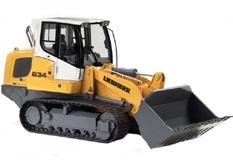
Forklifts | Skid Steer Loaders | Tractor Loaders | Wheel Loaders | Attachments



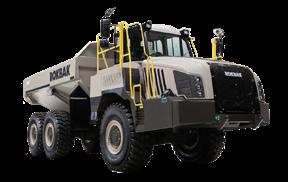





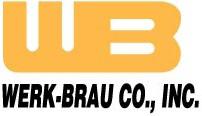
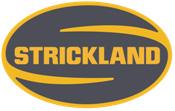



Grinders, Drum Chippers, Disc Chippers, Flails, Blower Trucks, Stacking Conveyors and Terra Select Screens




Asphalt Pavers, Asphalt Screeds, Cold In Place Recycling, Cold Planers, Material Transfer Vehicles and Stabilizers / Reclaimers

Asphalt Rollers, Soil Compactors, Plate Compactors, Rammers, Ride-On Vibratory Rollers and Walk-Behind Rollers



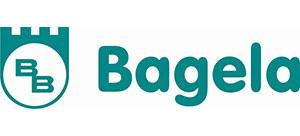
Crawler Loaders, Crawler Tractors, Excavators, Wheel Loaders and Material Handlers
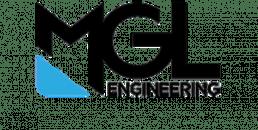
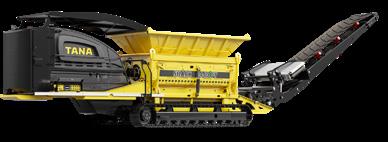



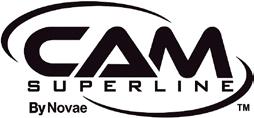
Crawler Carriers with Rotation

Compact Track Loaders, Compact Wheel Loaders and Mini Excavators

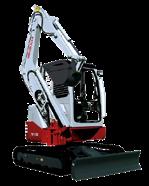
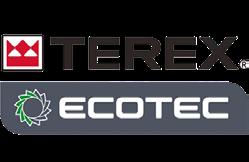

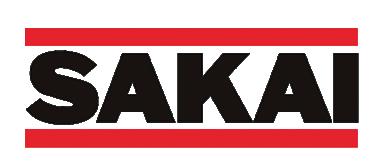
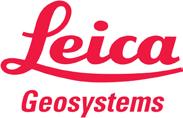


Articulated Trucks Landfill Compactors & Shredders

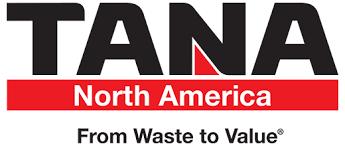

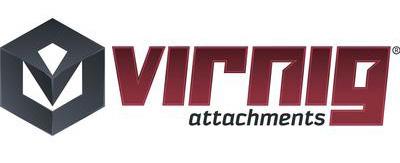



Track Conveyors, Crushers and Screens

26 SPRING/SUMMER 2023


SPRING/SUMMER 2023 27 HARD WORK. RELIABILITY. PRIDE. It’s what matters. You’ve worked hard to construct a reliable business that takes pride in excellent workmanship. That matters. UFG Insurance knows the importance of protecting the reputation you’ve built. As the carrier of choice, we’re proud to offer members of the New Jersey Chapter of LICA a special opportunity to participate in our trusted state LICA insurance program. Receive products and services tailored to unique industry needs, including comprehensive risk control. Exceptional customer service that doesn’t end when a contract is signed. CEDAR RAPIDS, IA Find a UFG agent today at ufginsurance.com. © 2022 United Fire & Casualty Company. All rights reserved.


Why Outsource Your Accounting Save time. Reduce overhead. Improve operational efficiency with best practice workflows. Visit withum.com to learn more about Withum OASyS for Construction Services. withum.com



























SPRING/SUMMER 2023 29 Quality Parts...Better Service Quality Parts...Better Service 908-355-3335 | WWW.BUCKETSUPPLY.COM 169 US HWY 22, HILLSIDE, NJ 07205 Bucket Teeth • Cutting Edges • Bucket Pin Shims Rubber Tracks • Ar400 Rolled steel-Wear Bar & Plate Buckets & Thumbs • Shop Supplies • Hydraulic & Motor Oil Interstate Batteries • Jack Hammer Bits TM

A bigger bang for your buck


SPRING/SUMMER 2023 31 • • • • • • • • • • • • • • • • • • • • • • • • • • • • • • • • • • • •
NJLICA MEMBER BENEFITS
•
NEW MEMBERS
GROWING BIGGER AND STRONGER EVERY DAY
Contractor Members
ACT Trucking LLC
Carlos Felix Monroe, N.J.
AJS Contracting LLC
Albert Simons
Cedar Run, N.J.
A-N Landscaping & General Contracting, Inc.
Tony Ciullo
Westfield, N.J.
A & R Excavating, Inc.
Robert Cruz
Clark, N.J.
Aberdeen Trucking LLC
Akini Celestine
East Orange, N.J.
Acer Associates LLC
Joann Horn
West Berlin, N.J.
Amramp
Jacob Burgida
Englewood, N.J.
Applied Service Corporation
Walter Keever
Lafayette, N.J.
BT Hauling LLC
Brett Phelan
Cherry Hill, N.J.
Benedetto Contracting Co., Inc.
John Benedetto III
Palisades Park, N.J.
Bento Enterprises LLC
Marlen Bento
South Plainfield, N.J.
Bergholz’s Tree Experts LLC
Gunar Bergholz
Monroeville, N.J.
Carmar Trucking LLC
Carlos Louvado
South Amboy, N.J.
A REMINDER THAT THE NJLICA DUES YEAR RUNS FROM SEPTEMBER 1-AUGUST 31 OF EACH YEAR. THE 2023-24 DUES INVOICE WILL BE MAILED AFTER LABOR DAY. THANKS FOR YOUR CONTINUED SUPPORT. IT IS GREATLY APPRECIATED.
*70 NEW MEMBERS ADDED JANUARY 1-APRIL 30
Clarke Moynihan Landscaping & Construction
Clarke Moynihan Andover, N.J.
DI Trucking LLC
Danilo Carvalho E Silva
Kenilworth, N.J.
DKC Contractors LLC
Kyle Carter
Cape May, N.J.
D. Rubio Express LLC
Danny Rubio
Belleville, N.J.
DiLucca Construction LLC
Diogo Nascimento
Old Bridge, N.J.
Domar Contracting LLC
Jose Garcia
Hopatcong, N.J.
Drainbusters, Inc.
Stuart Roth
Garfield, N.J.
E & B Hauling Services LLC
Elemond Tucker
West Orange, N.J.
Equestrian Surfaces, Inc.
Nick Attwood
Marshall, Va.
Galderese Trucking LLC
Nick Galderese
Farmingdale, N.J.
Gassis Global Investments LLC
Eleftherios Gassis
Atlantic City, N.J.
Glenside Equipment Co.
Trisha Morgan
Farmingdale, N.J.
Global Development Contractors LLC
Michael Schlaefer
Branchburg, N.J.
GMG Transportation LLC
Carlos Narvaez
Union, N.J.
Gomez Brothers Trucking, Inc.
Jose Gomez
Parsippany, N.J.
G State Logistics Corp.
Kirsty Funes
Newark, N.J.
GWOATS Industries LLC
Hector Mendoza
Elizabeth, N.J.
GET INVOLVED
THE NJLICA BOARD HAS POSITIONS AVAILABLE FOR THE FOLLOWING COMMITTEES:
Membership Scholarship
Legislative Communications and Marketing
Silent and Live Auction
Member Programming and Social Member Networking/Education Monthly Meetings
Events: State Conference
Golf Classic
Beefsteak Dinner
Holiday Awards Dinner
32 SPRING/SUMMER 2023
H & D Rosetto, Inc.
Denise Rosetto
Jackson, N.J.
Hoff, Inc.
Patrick Hoff
Montville, N.J.
JE Lara Trucking LLC
Joaquin Lara
Hopatcong, N.J.
JFF Trucking LLC
Fernando Fernandes
Piscataway, N.J.
J & R Transport LLC
Rachel Castellanos
Landing, N.J.
J Young Enterprises, Inc.
Joshua Young
Hewitt, N.J.
John Cortese Mason Contractors, Inc.
Salvatore Cortese
Morristown, N.J.
Joselyn & Jean Contracting LLC
Joselyn Diaz
Roselle, N.J.
KnuVal Trucking LLC
Andres Knuth
Middlesex, N.J.
Lead South LLC
Rick Hoffman Concord, Del.
Lorusso Brothers Trucking LLC
Kristan Lorusso Howell, N.J.
M & A Trucking & Transport LLC
Matthew Pinkney
Asbury Park, N.J.
MCB Express LLC
Manuel Brito
Saddle Brook, N.J.
Mystic Material Transport LLC
Chris DeCandido
Bayville, N.J.
Montrose Environmental Solutions, Inc.
Lisa Keil
Robbinsville, N.J.
Navarro Trucking LLC
Fred Navarro Verona, N.J.
Nicholas Services LLC
Rob Abreu
South River, N.J.
NO Transport LLC
Jaime Ordenez Newark, N.J.
Noel Trucking LLC
Renessa Celestine East Orange, N.J.
Perrone Corporation Joseph Perrone Belleville, N.J.
Plymouth Industries LLC
Christopher Cherichio Branchburg, N.J.
R. Maddaluna Construction LLC
Rich Maddaluna
Bernardsville, N.J.
Ridensko Transport LLC
Erick Sylveus Neptune, N.J.
Sand Castle Excavation LLC
Joseph Andrzejczak Villas, N.J.
Sanzaro Disposal Services LLC
Angela Kacsur
Toms River, N.J.
Schusa Trucking LLC
Freddy Schol Union, N.J.
Seasons Enterprise LLC
Fabio Martinez
Netcong, N.J.
Service Plus, Inc.
Mark Wehrenberg
Flanders, N.J.
TFB Trucking LLC
Ty Bento
South Plainfield, N.J.
T. Caban LLC
Thomas Caban
Jersey City, N.J.
TWK Contracting LLC
Thomas Keuper
Westampton, N.J.
The Ireland Construction Group LLC
Michael Ireland
Princeton Junction, N.J.
Tino’s Trucking LLC
Nadar Hanna
East Brunswick, N.J.
Toro Services LLC
Joseph Torrisi
Whippany, N.J.
Total Site Improvements LLC
Thomas Chamberlain
Eastampton, N.J.
Tricore Construction Services
George Margetis
Montville, N.J.
Uriel Trucking LLC
Gabriel Reinoso
South Plainfield, N.J.
Vali Construction LLC
David Valian
Fanwood, N.J.
Associate Members
Midland Equipment Finance
Anton Tikhonov
Freehold, N.J.
Patriot Commercial Vehicle Inspections
Keith Toll
Toms River, N.J.
SPRING/SUMMER 2023 33
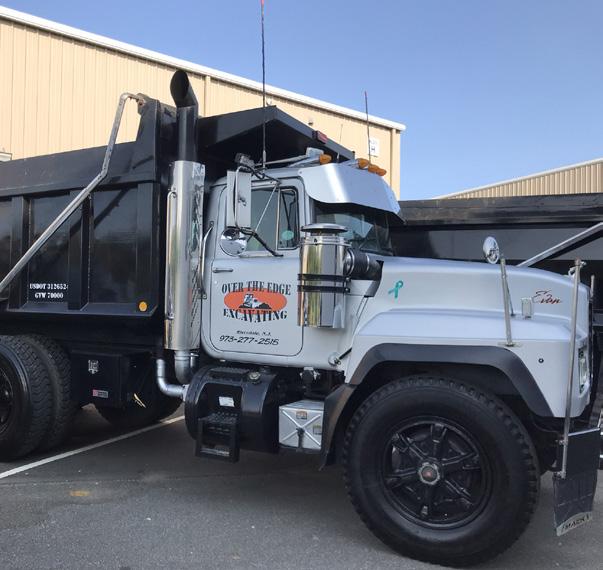
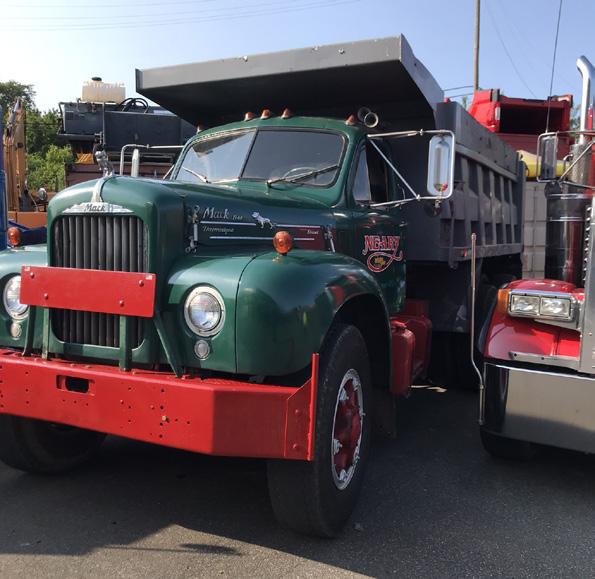
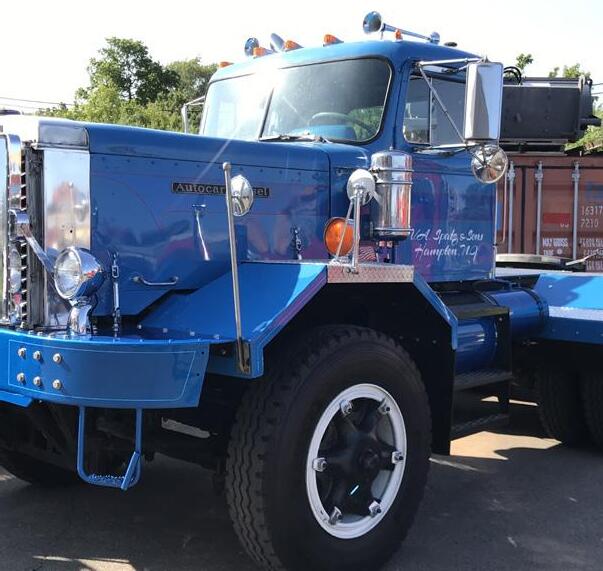
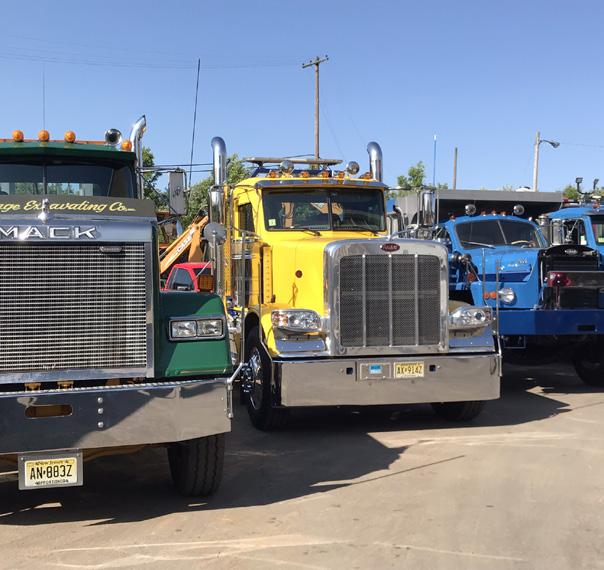


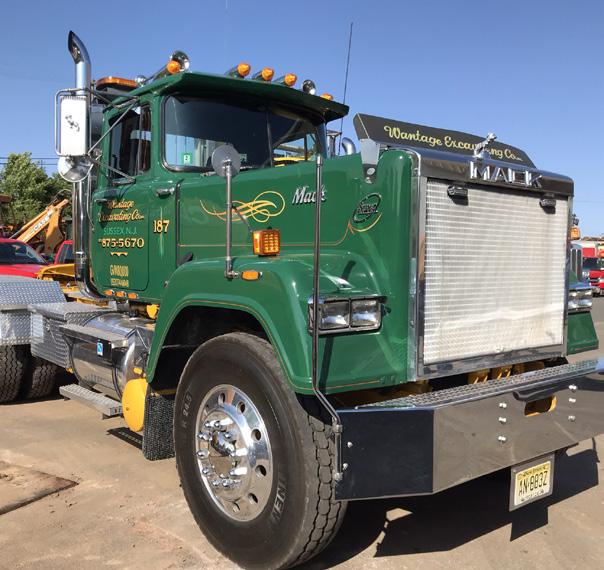
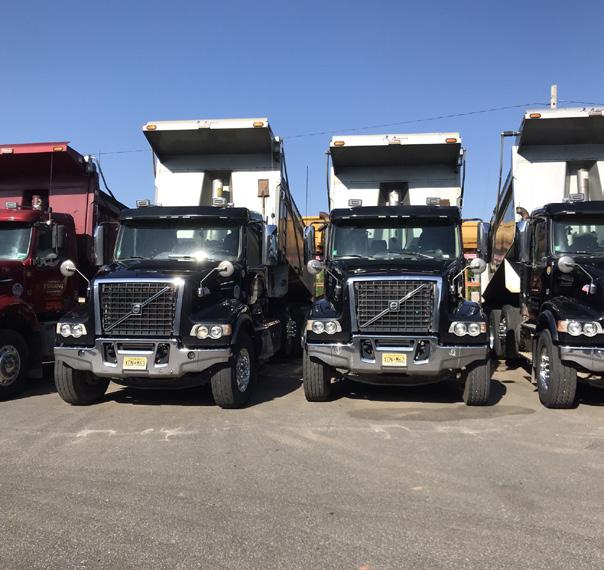

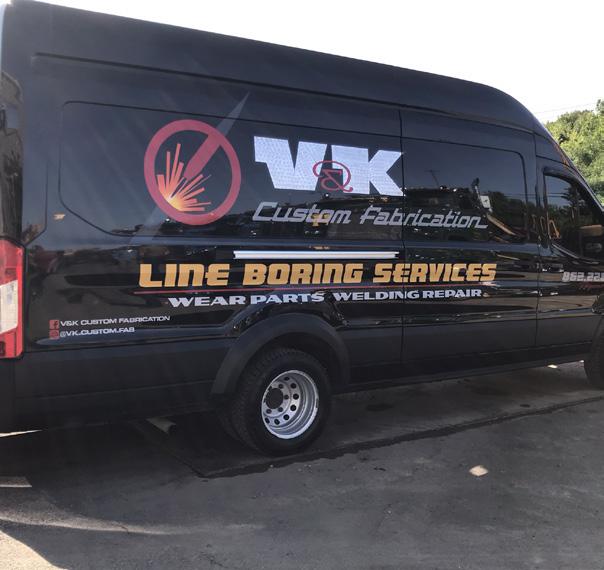
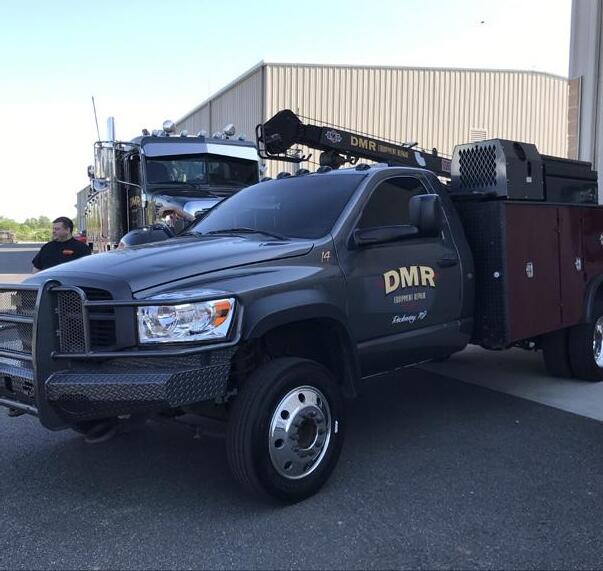
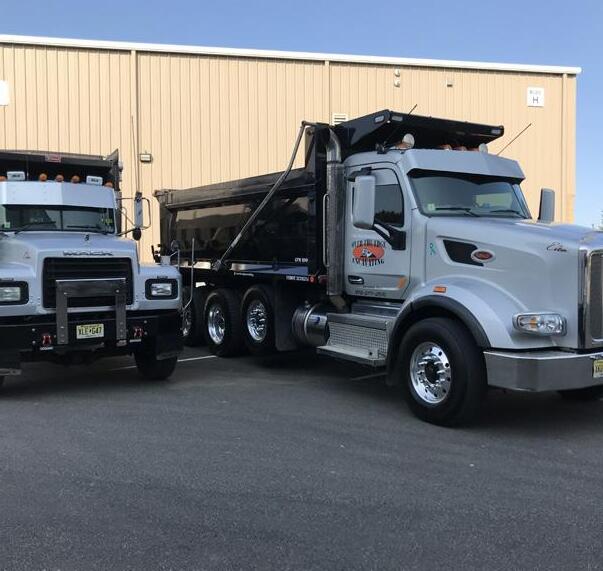
EVENTS 2023 NJLICA TRUCK SHOW
Over the Edge Excavating's entry into the Dump Truck competition.
J.A. Neary Excavating entry is awarded Outstanding Dump Truck.
A stunning entry by V.A. Spatz & Sons.
Enties are lined up waiting for judging.
The dump truck fleet of J.A. Neary Excavating.
DAG Mobile Aggregate Recyclingn displays its 1931 Ford Model A pickup truck.
Wantage Excavating shows its beautiful dump truck.
A stunning entry by J.A. Neary Excavating.
The spectacular service truck of JESCO.
V & K Custom Fabrication displays its beautiful trailer.
DMR vehicle is awarded Outstanding Service Truck.
Over the Edge Excavating's entry into the dump truck category.
PATRONS
VISION STRONG MANAGEMENT GROUP
Buddy Freund PO Box 166 Succasunna, NJ 07876 973-753-2800 buddy@govisionstrong.com govisionstrong.com
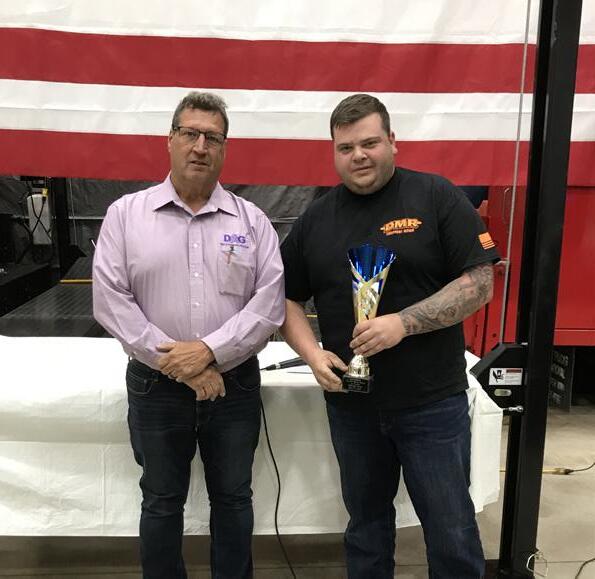
Vision Strong Management Group provides full-service association management services for associations, foundations, societies, and trade organizations. Add your company name to our Patron Directory. Contact NJLICA Executive Director Buddy Freund at 973-630-7600 or buddy@govisionstrong.com.
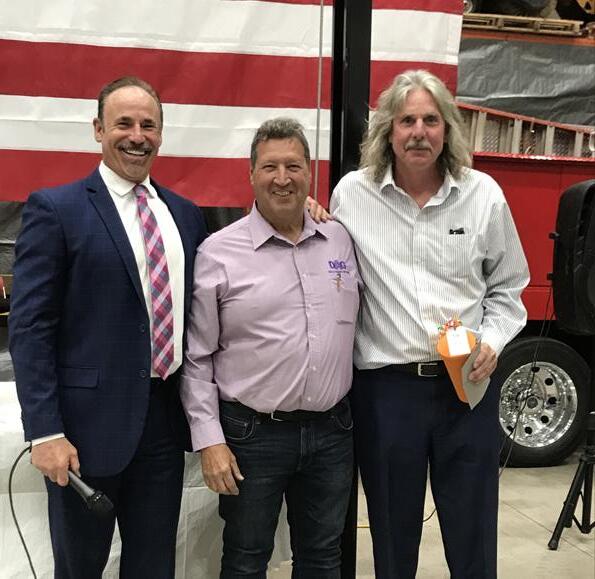
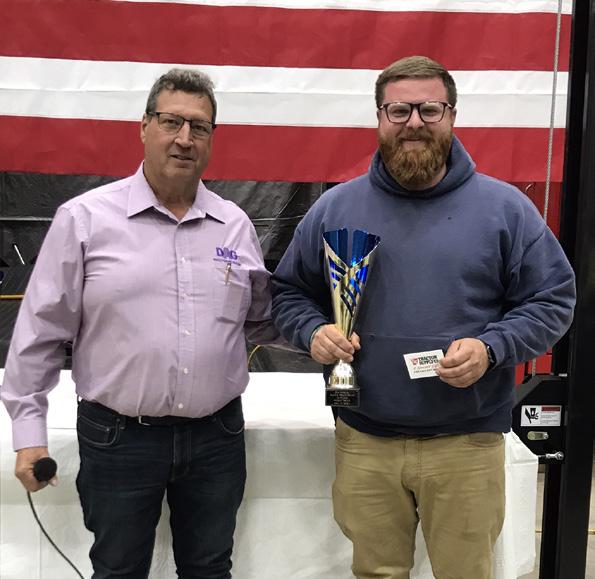
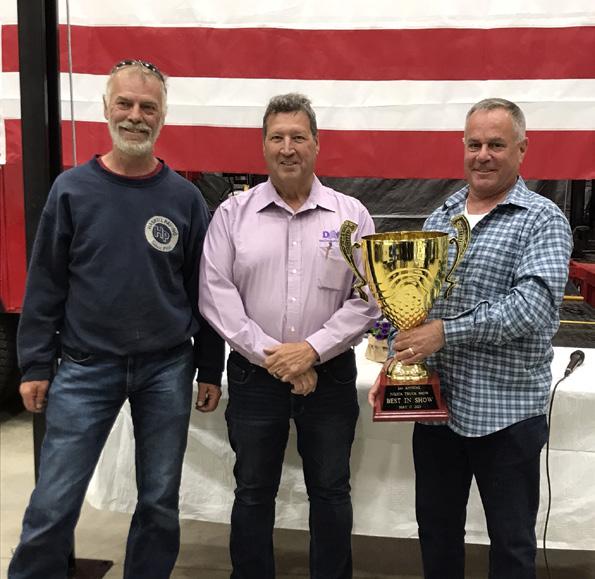
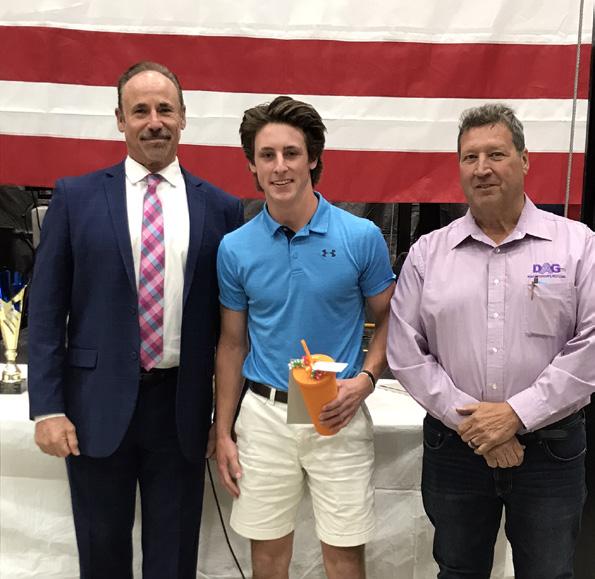
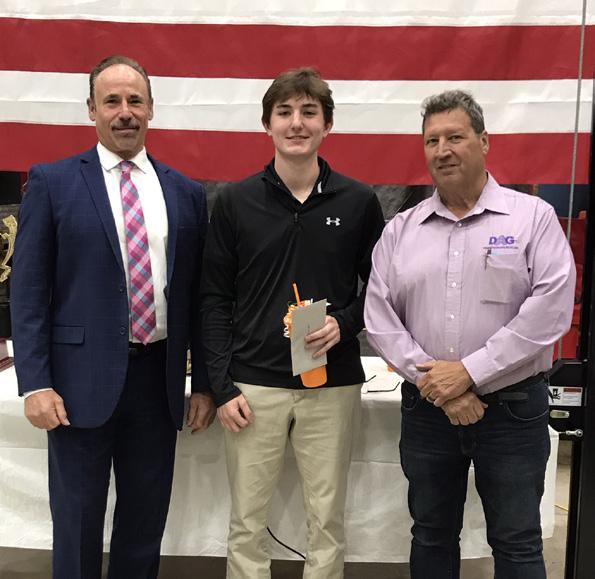

SPRING/SUMMER 2023 35
Julianna Chesla, Alpine Contruction Group, with her parents at the NJLICA Scholarship Awards Dinner.
Jeff Bailey accecpts the Gold Cup for Best in Show at the NJLICA Truck Show.
Dave Robertson, DMR Repair, accepts the award for Outstanding Service Truck.
Charlie Wogisch, Robert W. Wogsich Landscape Contractor, receives his scholarship award from NJLICA President Ron Garofalo and Richard Gaynor.
Horizon Landscape accepts the award for Outstanding Pickup Truck.
Wayne Carlson, W. Carlson General Landscaping, accepts the scholarship award from Ron Garofalo and Richard Gaynor on behalf of his daughter, Faith.
Tristan Davison, Robert W. Wogsich Landscape Contractor, receives his scholarship award from Ron Garofalo and Richard Gaynor.




36 SPRING/SUMMER 2023

SPRING/SUMMER 2023 37


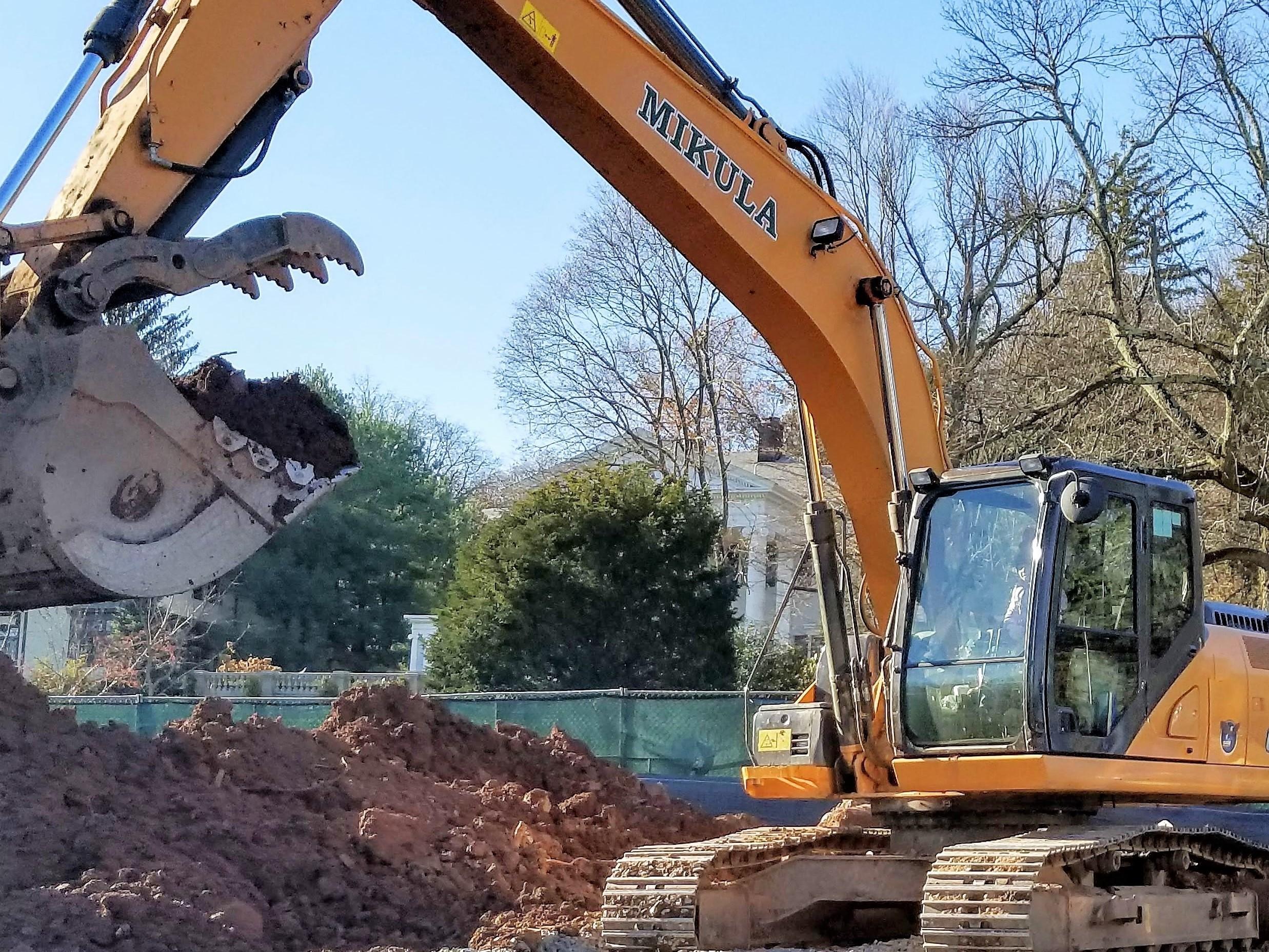
38 SPRING/SUMMER 2023 973.772.1684 www.mikulainc.com Proud Member of the New Jersey Land Improvement Contractors Association

SPRING/SUMMER 2023 39 6 Leigh Street Clinton, NJ 08809 325 North Avenue East Westfield, NJ 07090 Call or email us today to learn more about our offerings. rschielke@trueassoc.com 908-379-2359 We help our clients manage and protect their most valuable assets—their people and their business. As part of the World Insurance Associates family, we offer our clients top products and services from the best providers that span all of your personal and commercial needs. You will continue to get the white-glove service and personal touch of your local True agent. • Personal Insurance • Commercial Insurance • Surety & Bonding • Employee Benefits • Financial & Retirement Planning • Human Capital Management Solutions Large Resources. Local Relationships.
AND OPERATOR APPRENTICES
How Can Apprenticeship Training Help Your Company?
• Instill your company’s culture and retain workers

• Recruit and develop a diverse and highly skilled workforce

• Improve productivity, profitability, and your bottom line
• Reduce turnover, improve loyalty, and retain top talent
• Demonstrate investment in your community
New hires and/or existing employees or Hire an apprentice from the NJLICA Apprenticeship Program

40 SPRING/SUMMER 2023NJLICA • PO Box 166 • Succasunna, NJ 07876 • www.NJLICA.org NJLICA is looking for LABORER
This Education Has Two Facets: On The Job Training and Classroom Instruction Your Apprentice will Learn and Produce Better Quality Work, Moving You Forward at No Additional Cost to the Employer! For Questions Or To Enroll Your Apprentice Today Simply Contact: Buddy Freund, Executive Director At Buddy@govisionstrong.com 973-630-7600


CONTACT US HEY, YOU!
Have a story idea? SEND IT! Got a great photo? SEND IT! Have some feedback for us? SEND IT!
We are on the lookout for content. Promote your business by sponsoring an ad, or send us articles and photographs to be published in a future issue of The Underground. For more information on how you can be featured, contact:
Buddy Freund
NJLICA Executive Director
973-630-7600
buddy@govisionstrong.com
WRITE TO US!
42 SPRING/SUMMER 2023
M. Adams & Associates inside front Mikula Contracting 38 NJLICA 40 North American Aggregates 13 Precision Hydraulic & Oil 20 Prins Insurance 27 Scheideler Excavating 18 Tilcon 41 Tri-State Safety Solutions 11 True & Associates 39 Withum 28
AD INDEX
COMPANY PAGE NUMBER Bobcat of North Jersey 21 Brent Material Company 6 Bucket Supply & 29 Equipment Parts DAG Onsite Crushing 7 Genova Burns back cover Grassi Advisors & 19 Accountants GT Mid Atlantic 26 Highway Equipment inside back cover JESCO 3 Lindabury, McCormick, 30 Estabrook & Cooper, P.C.
The 612W Trommel is a self-contained, dieselpowered, portable screening plant designed to separate topsoil, compost, wood chips, and green waste products. It features a direct open feed hopper with a large 6′-0″ x 12′-0″ rotating drum that creates 160 square feet of screening area. The pile heights created by the side discharge conveyor and oversize conveyor will give the operator hours of uninterrupted processing time.


At Highway Equipment, we are SOLUTION PARTNERS. We help you find the right equipment and features, like the Screen Machine 612W Trommel, to get YOUR job done productively and predictably.


SPRING/SUMMER 2023 43
615 STATE ROUTE 33, MILLSTONE TWP, NJ 08535 | HIGHWAY-EQUIPMENT.COM 732.446.7600 WHY HIGHWAY? We make uptime easy, so our partners can build a better America. SOLUTION PARTNERS URGENT ABOUT UPTIME JOY TO WORK WITH
SCREEN MACHINE 612W PORTABLE TROMMEL SCREEN
URGENT ABOUT UPTIME SINCE 1933 REQUEST A QUOTE







44 SPRING/SUMMER 2023 NJLICA PO Box 166 Succasunna, NJ 07876 www.genovaburns.com Genova Burns LLC • Attorneys-At-Law Newark, NJ 973.533.0777 Jersey City, NJ 201.469.0100 Tinton Falls, NJ 732.758.6595 Camden, NJ 856.968.0680 New York, NY 212.566.7188 Philadelphia, PA 215.564.0444 GENOVA BURNS AT THE INTERSECTION OF LAW, GOVERNMENT AND BUSINESS











































































































































































